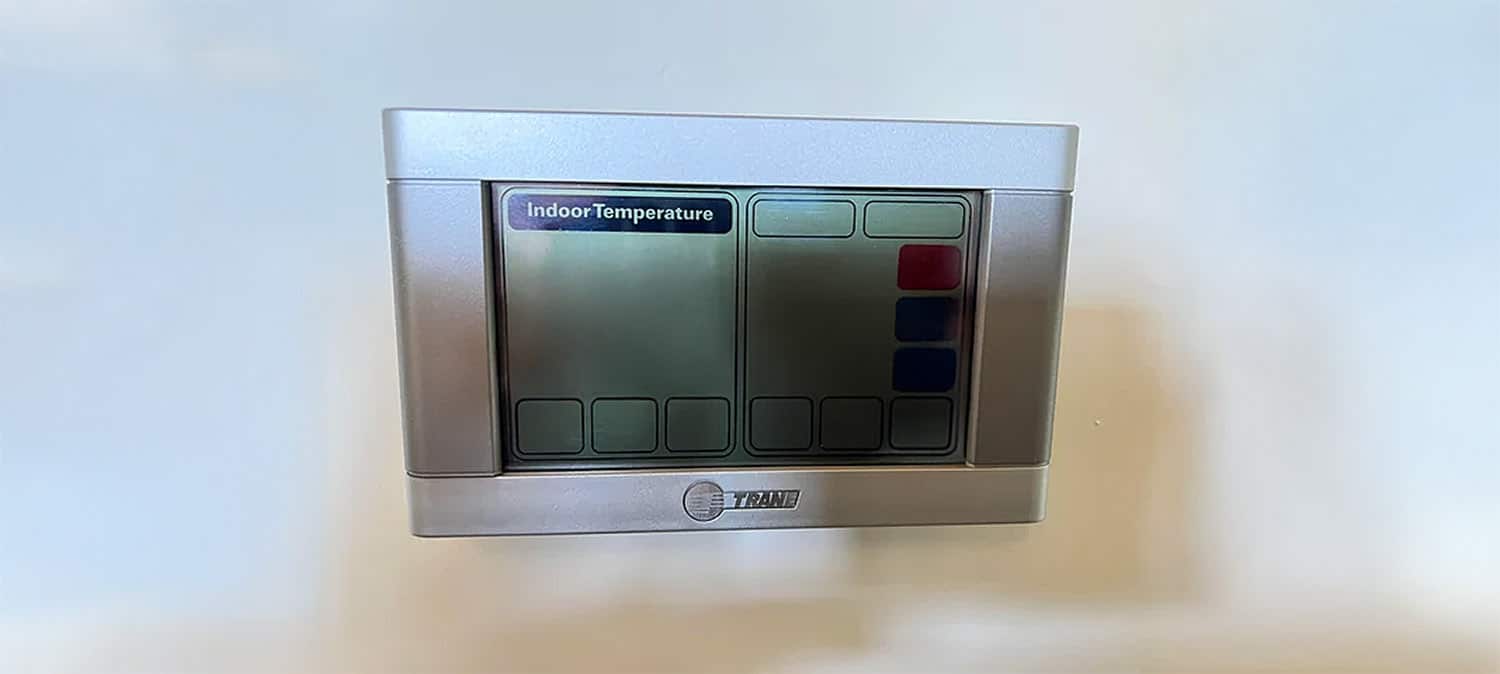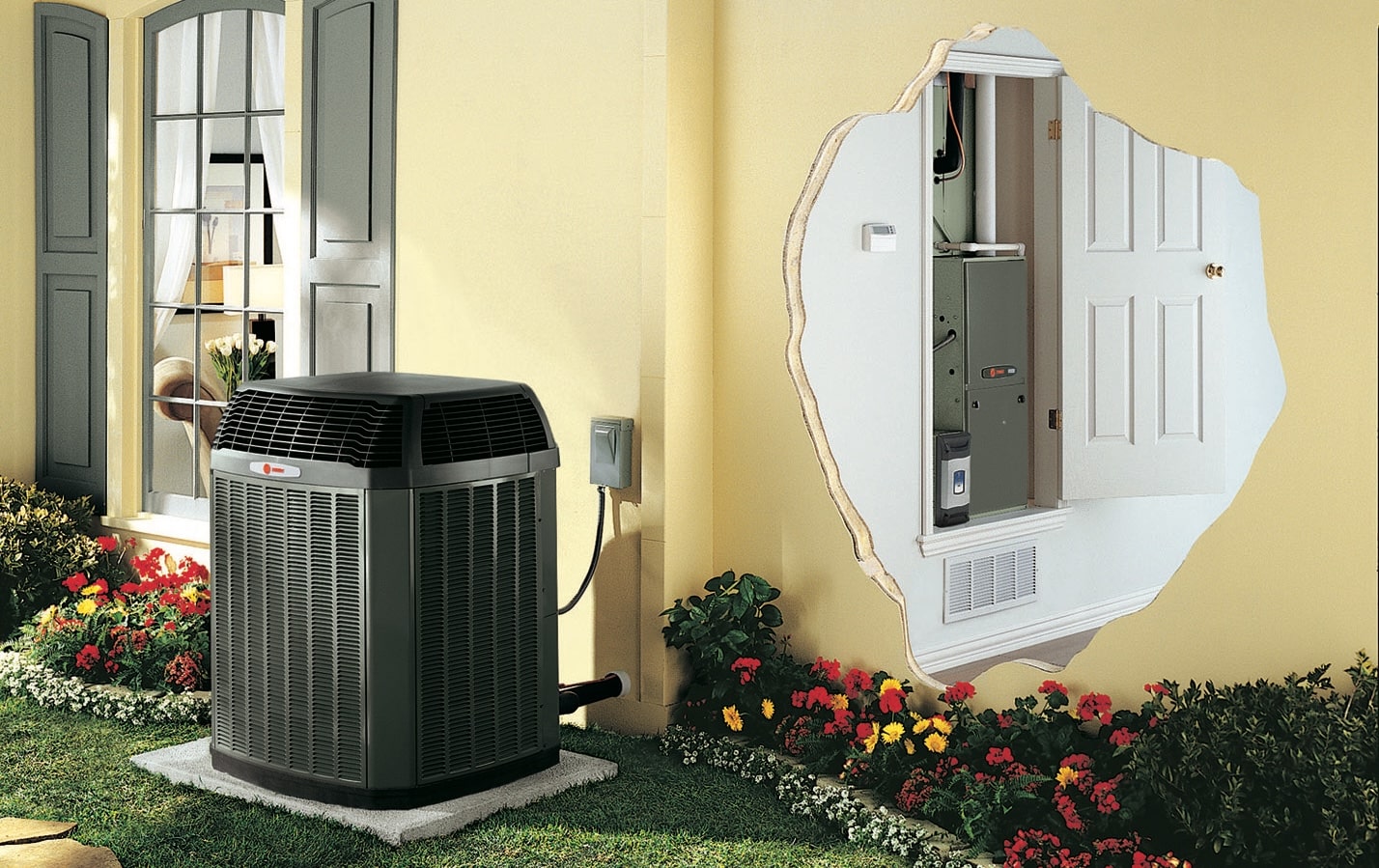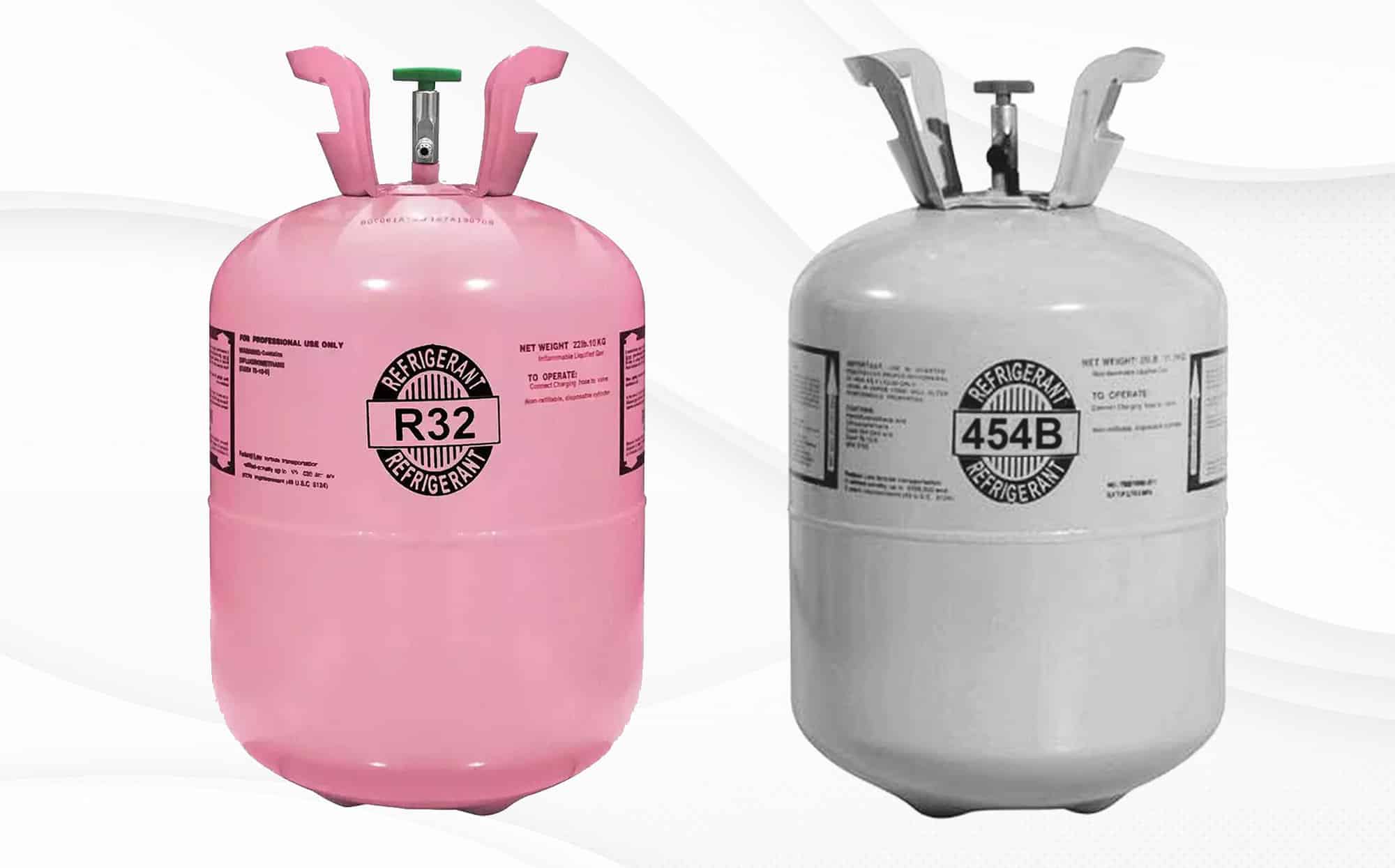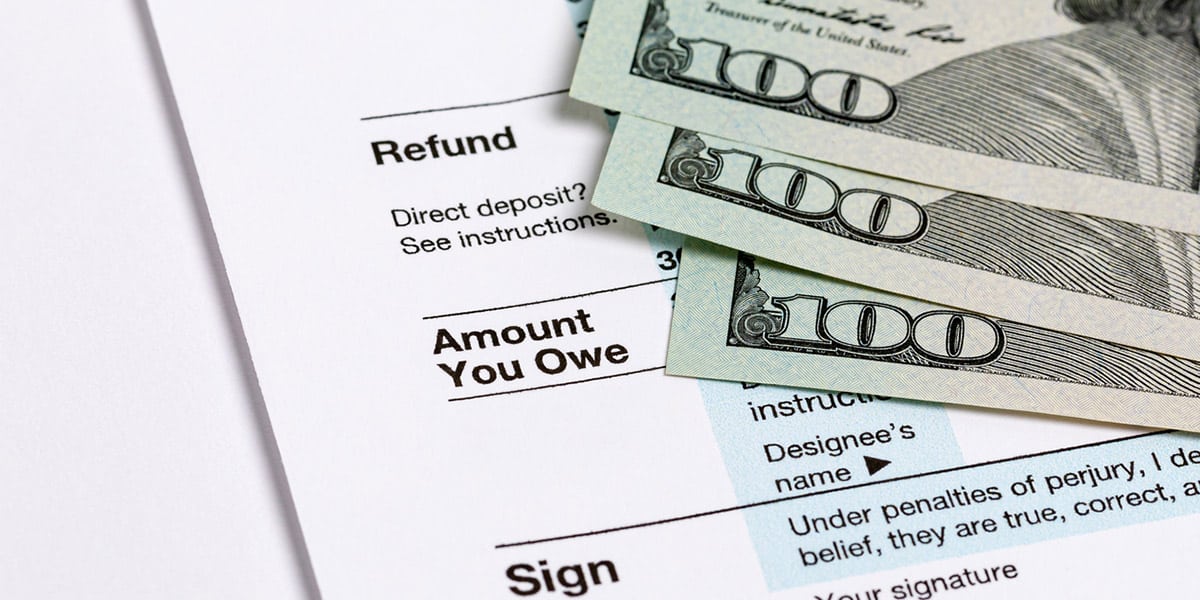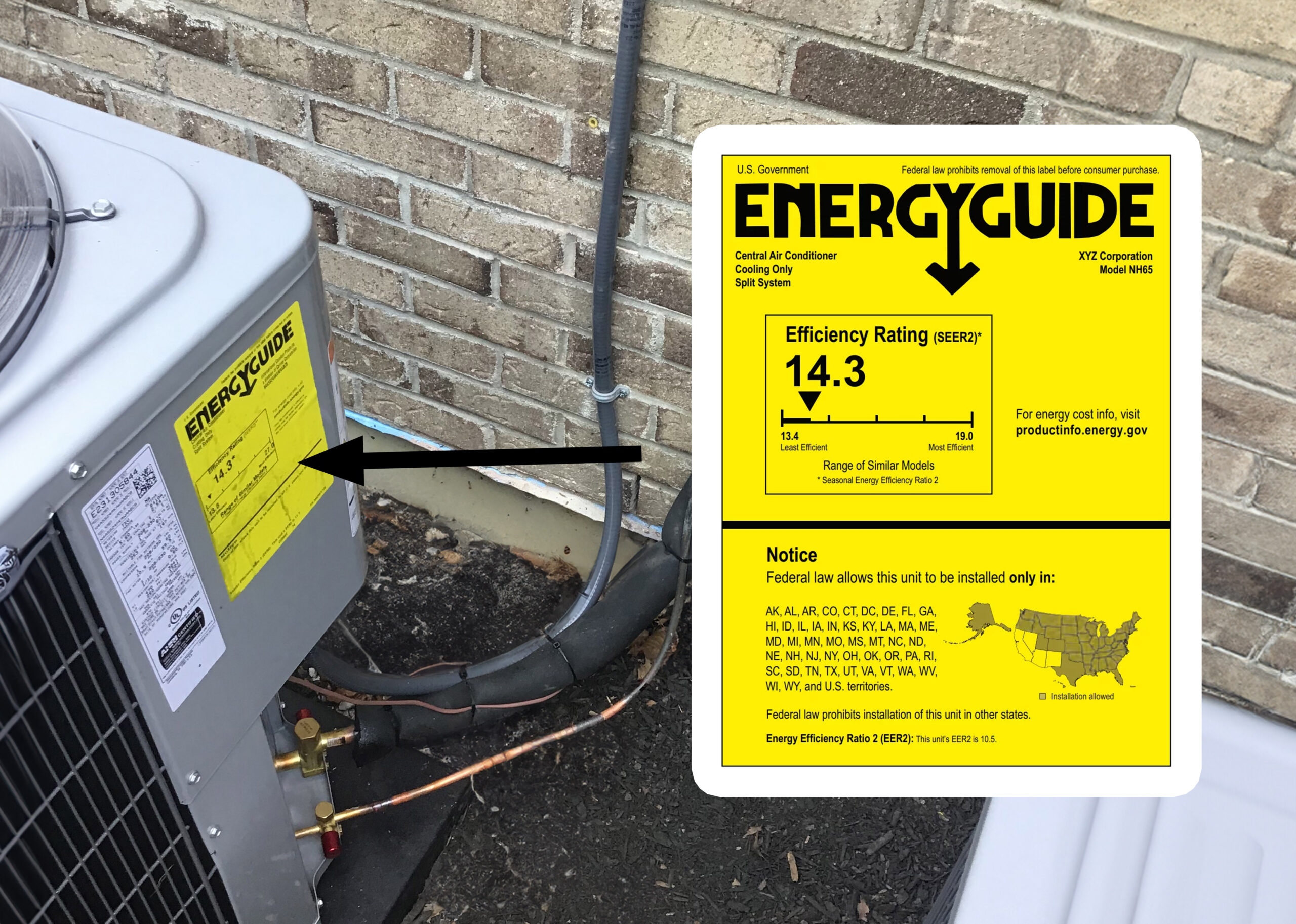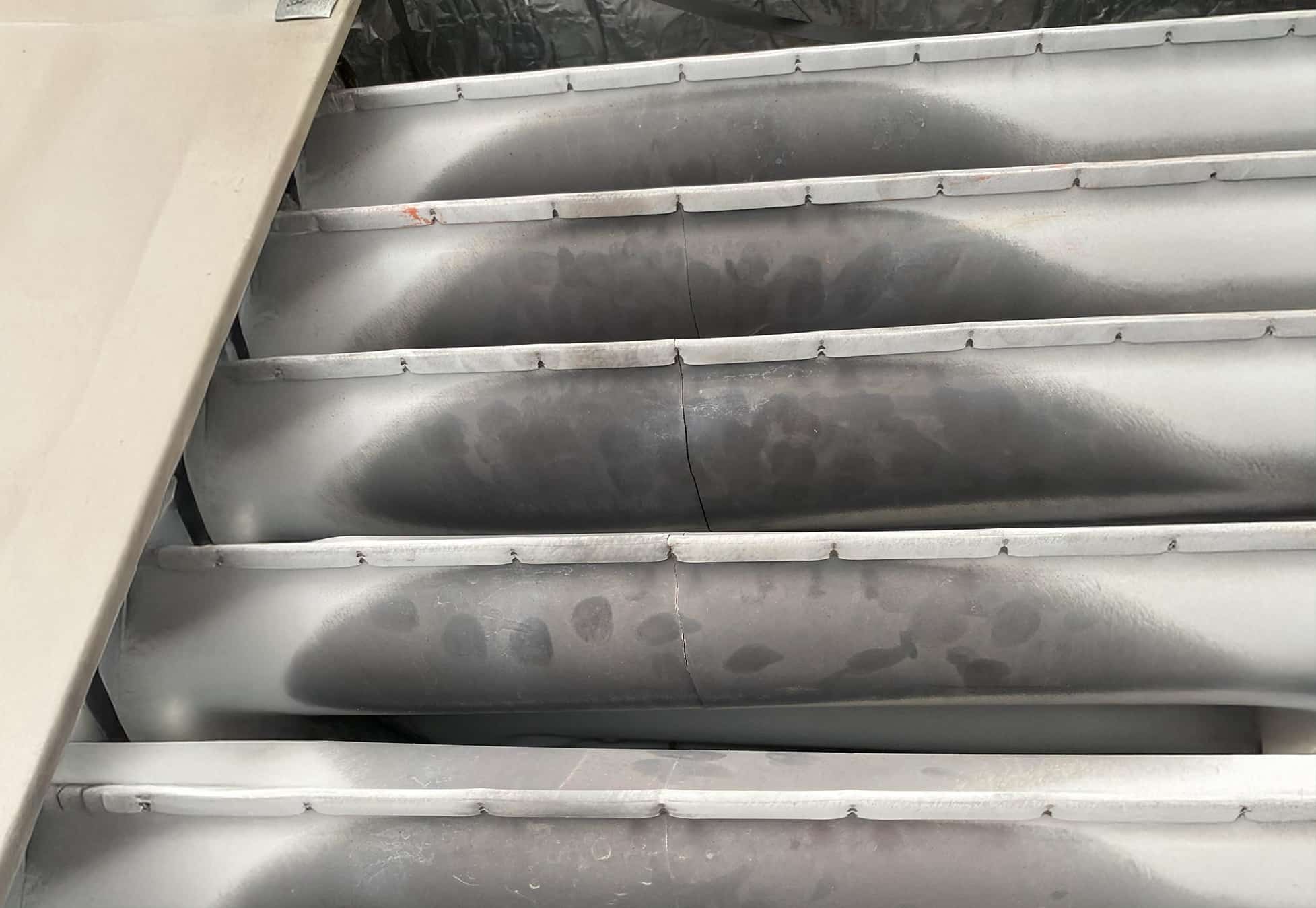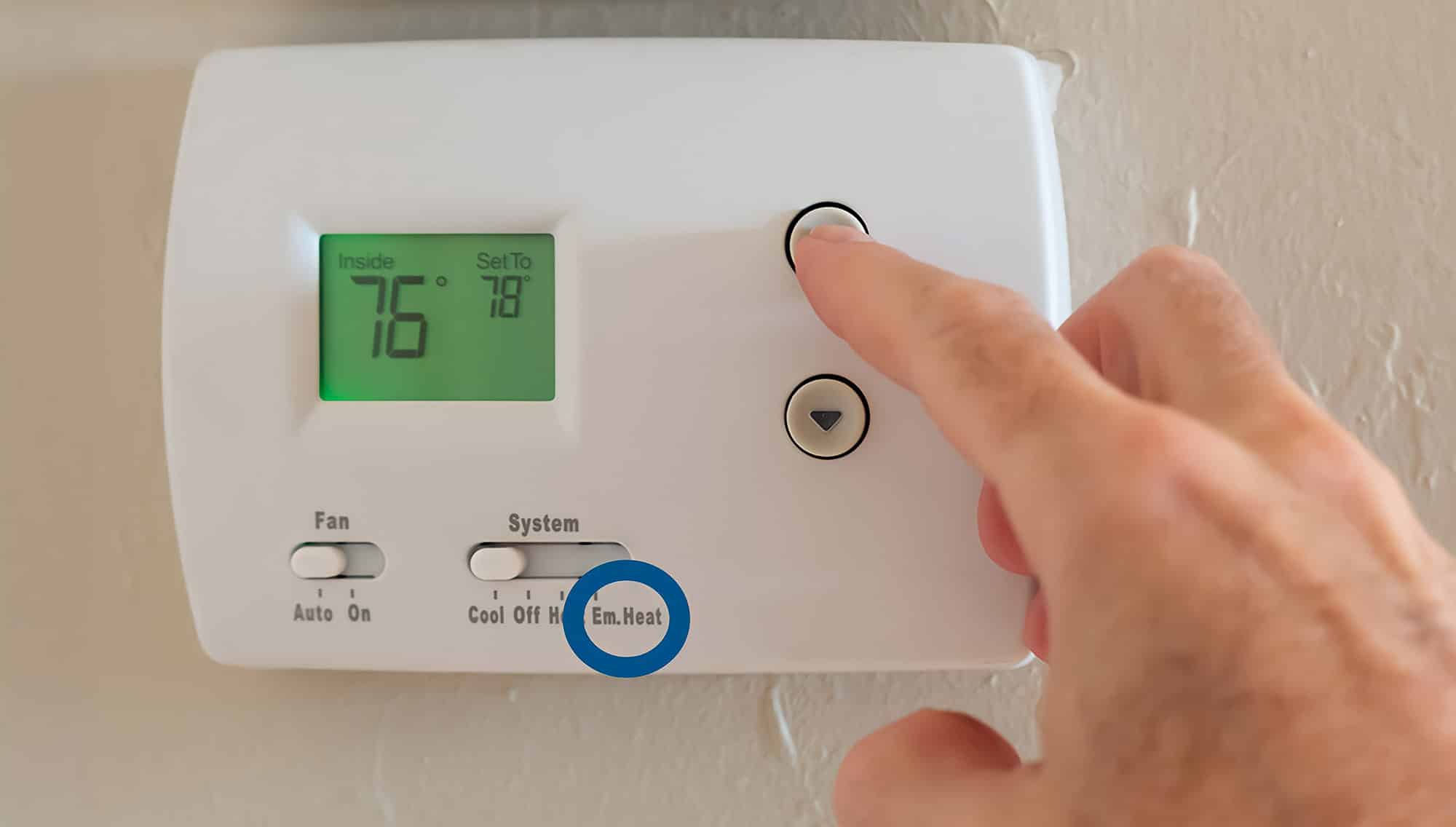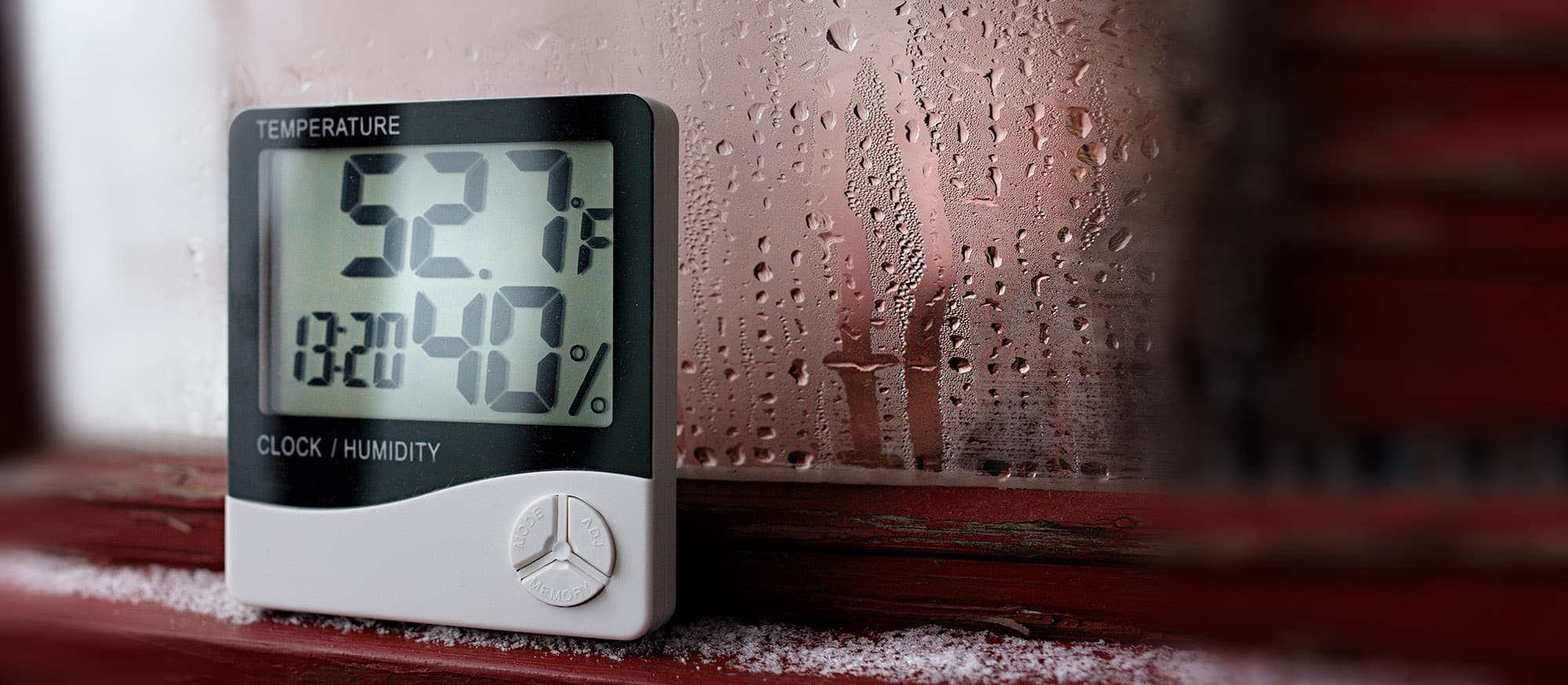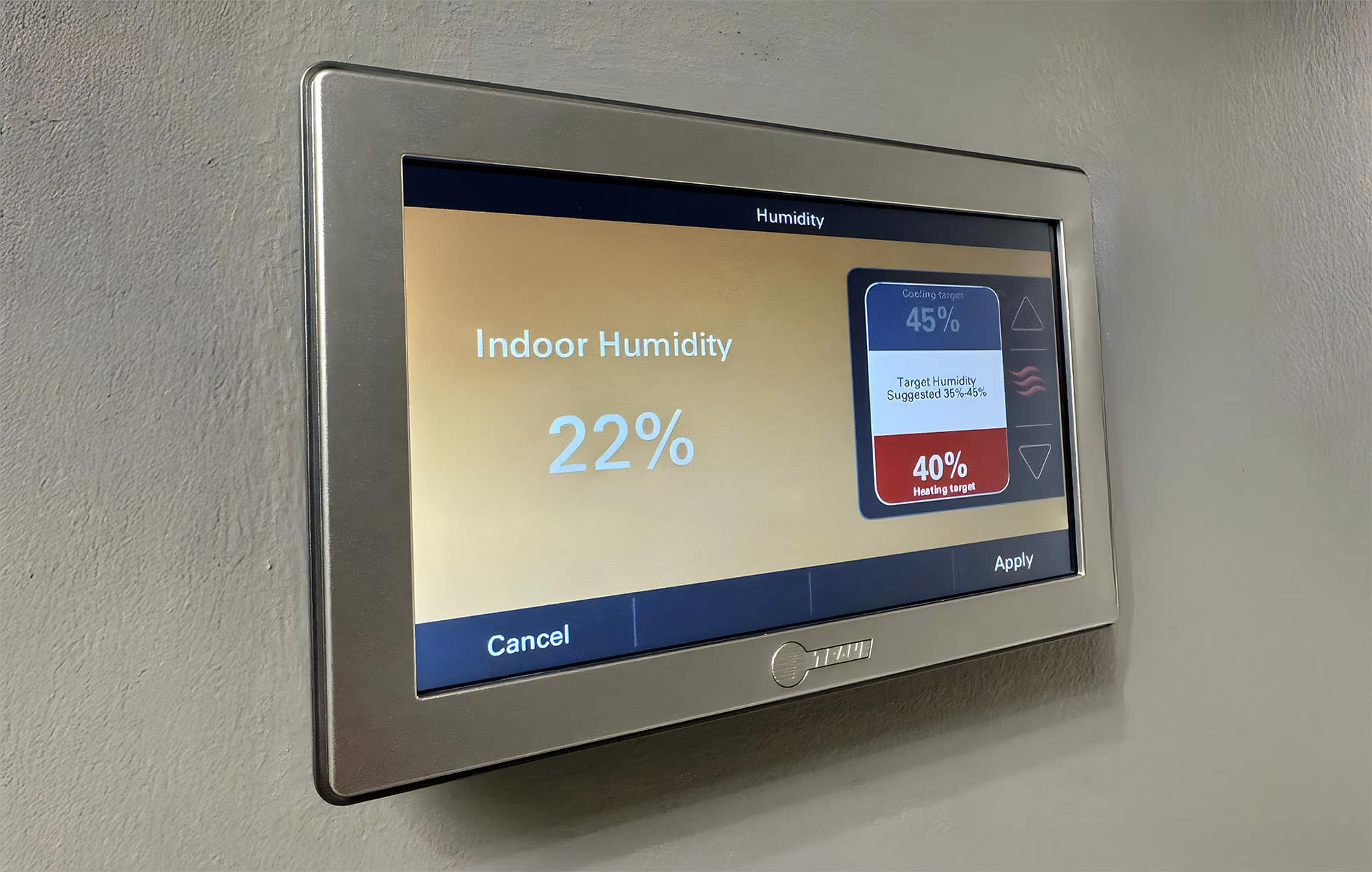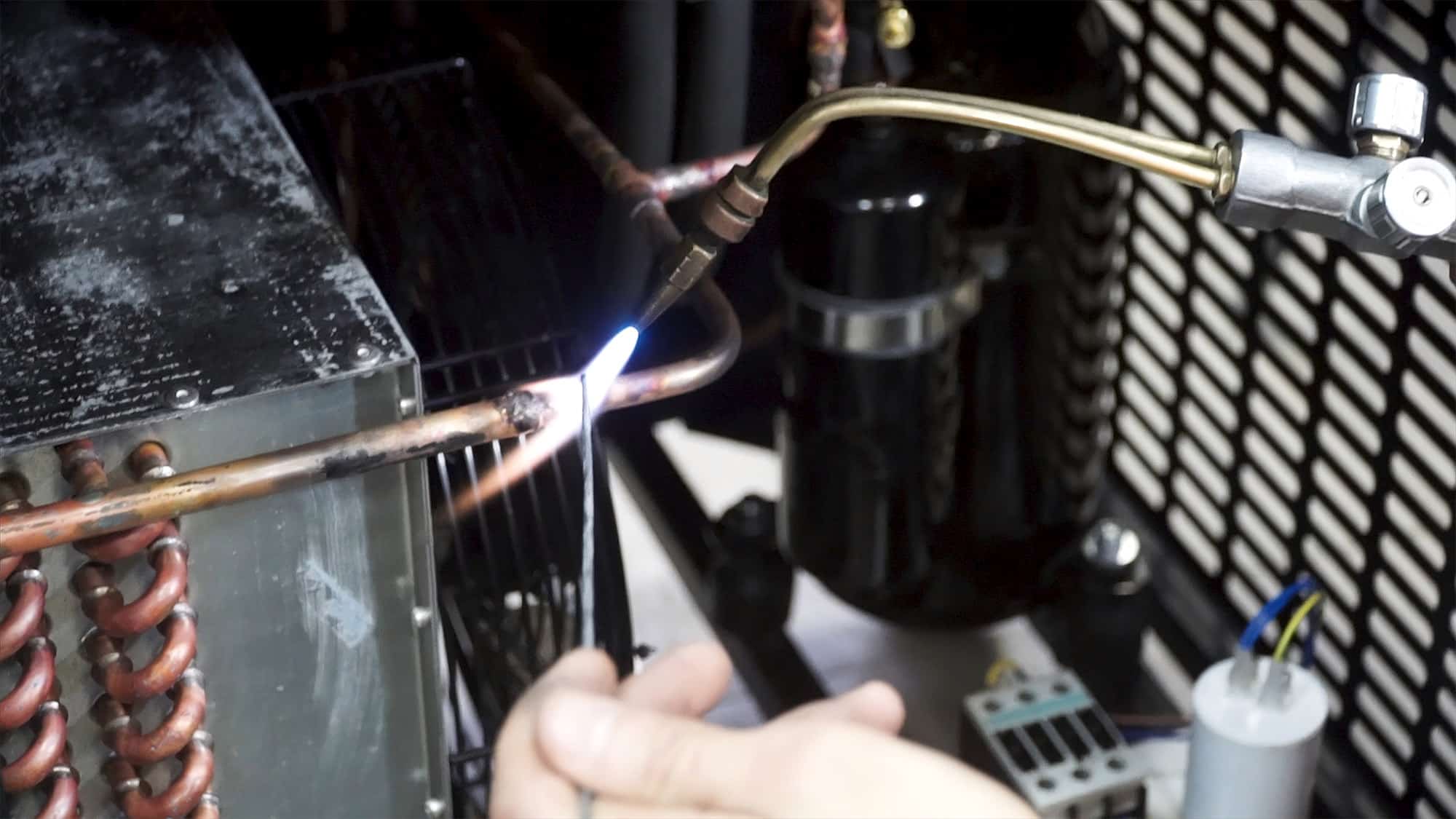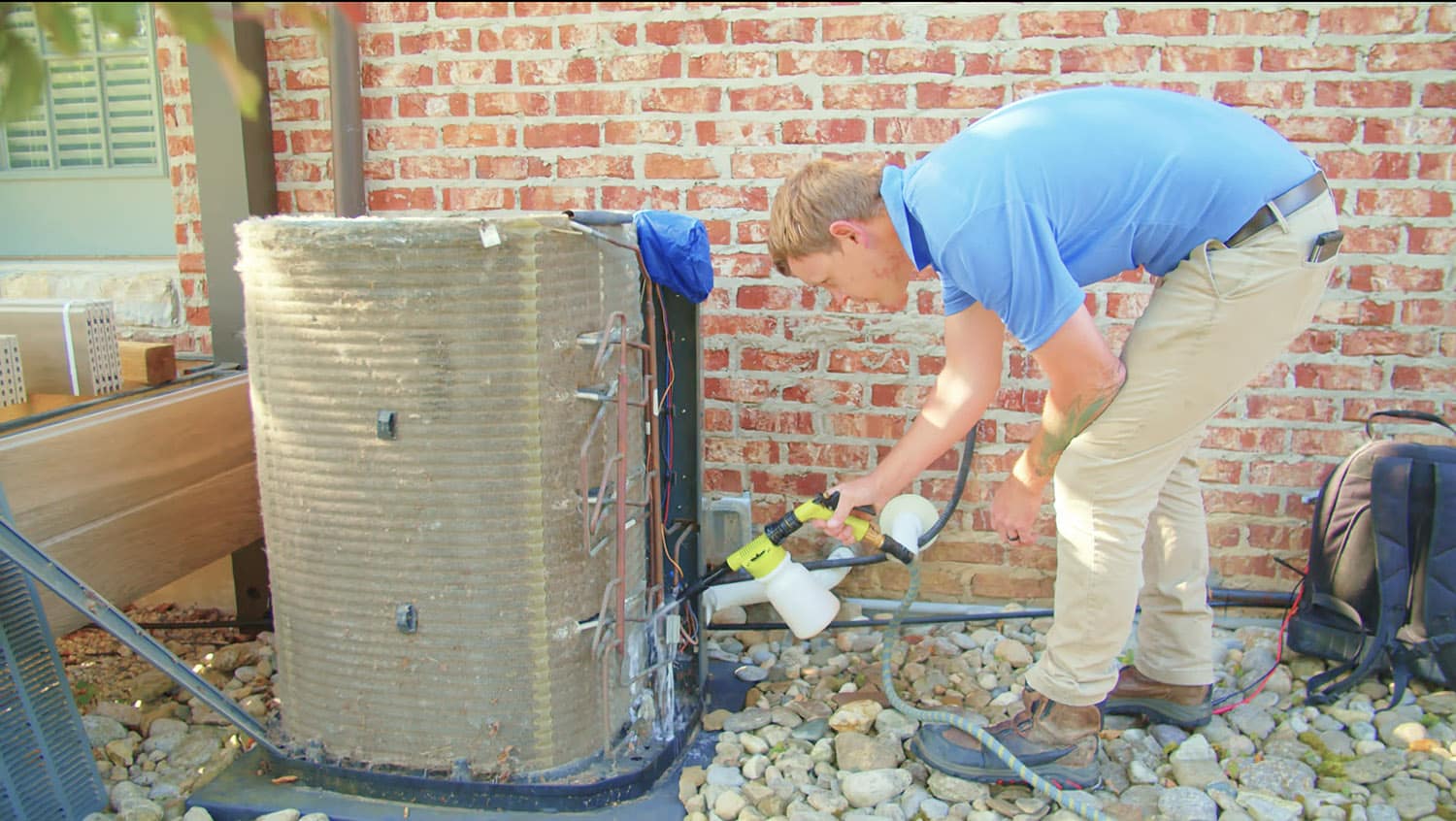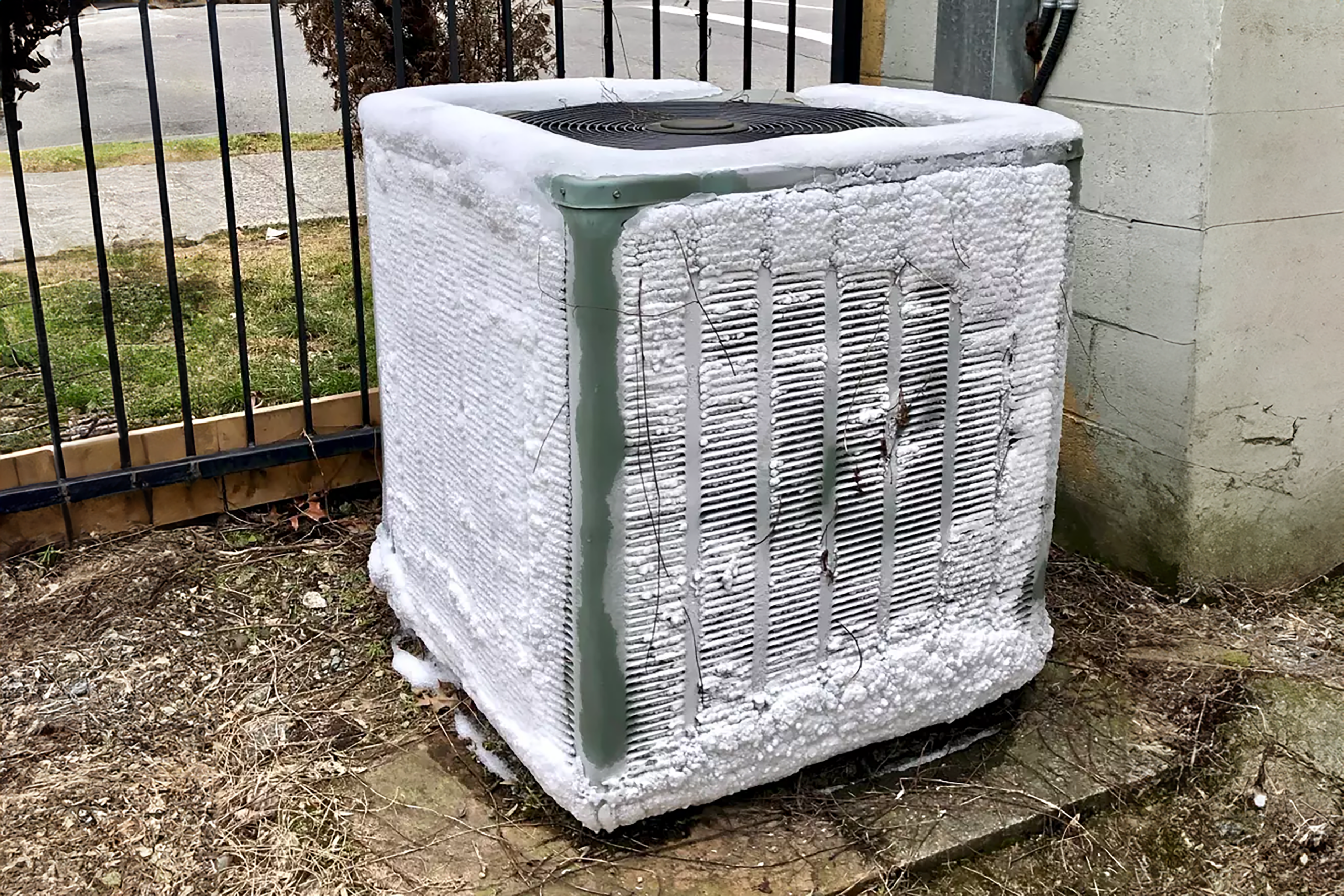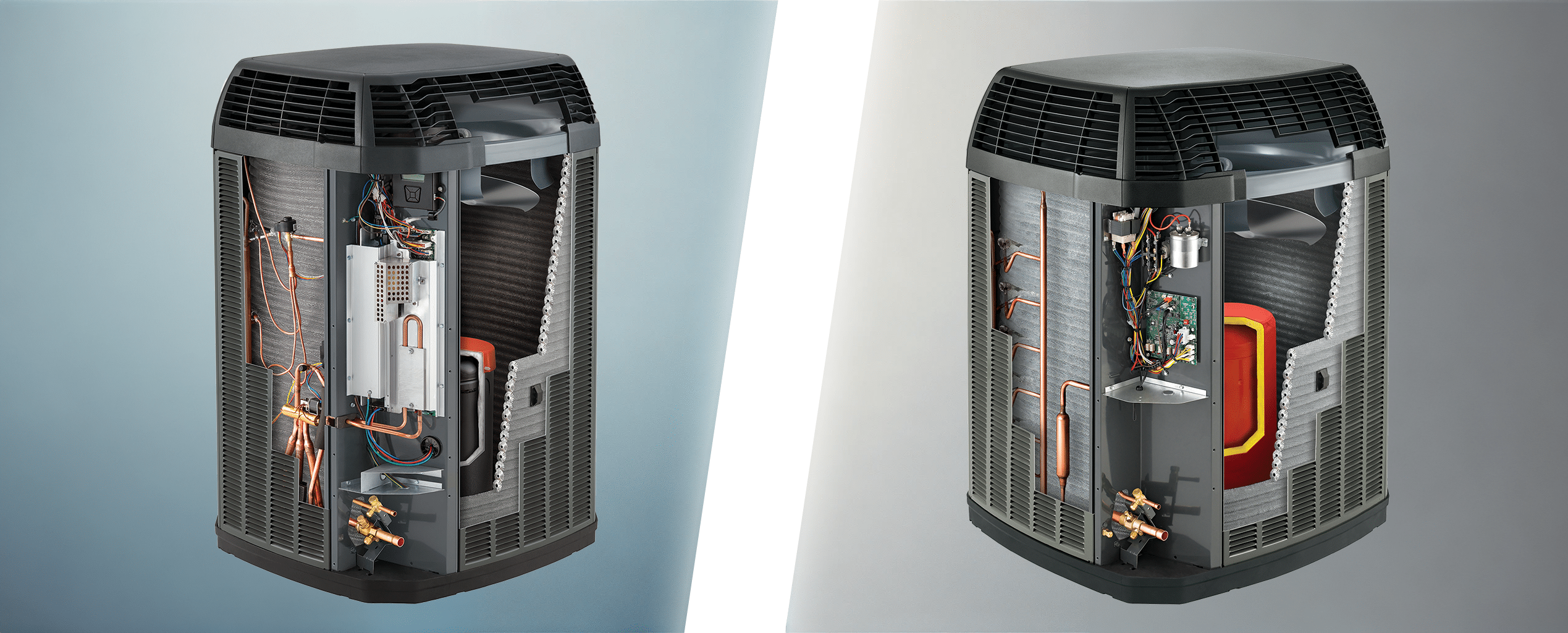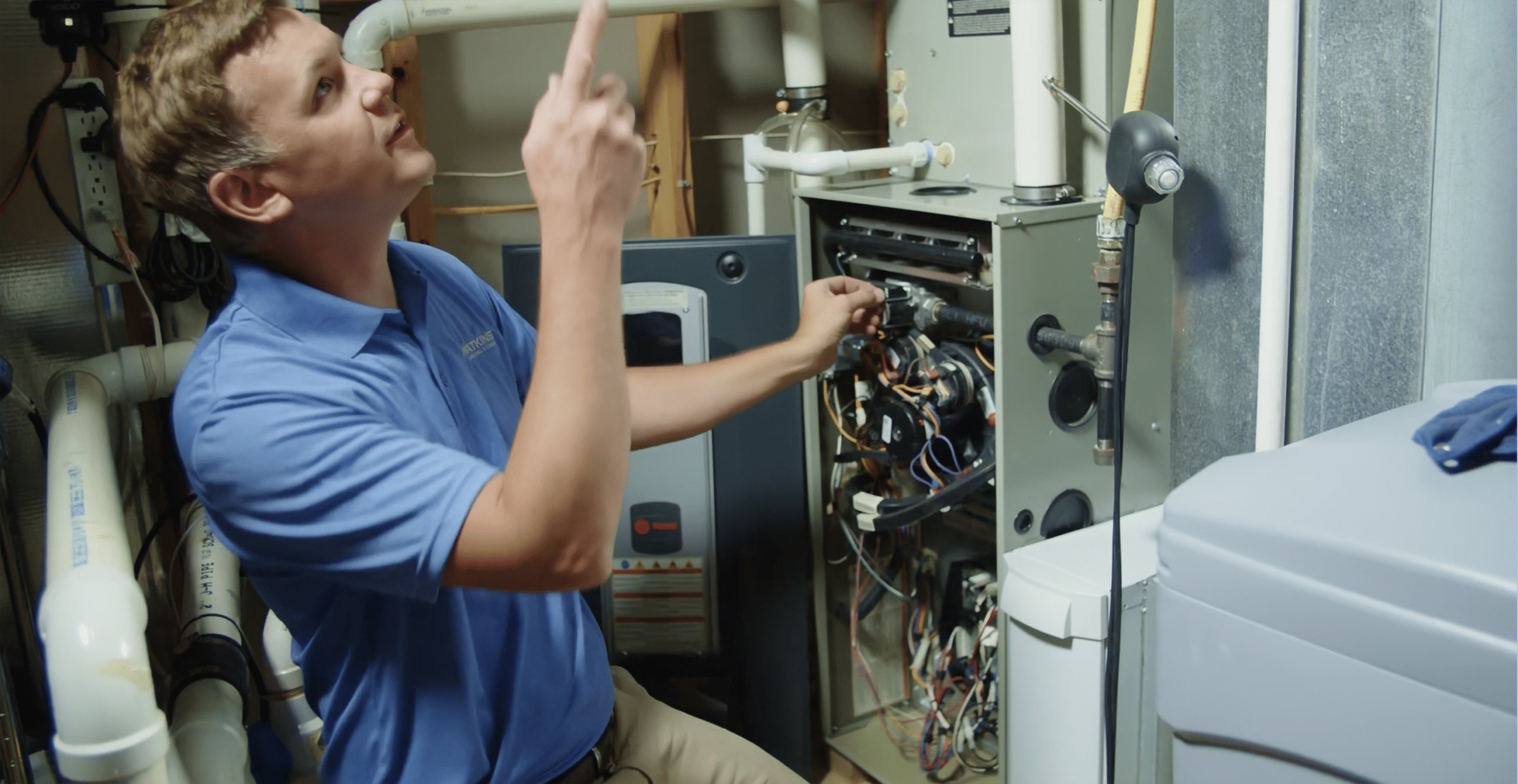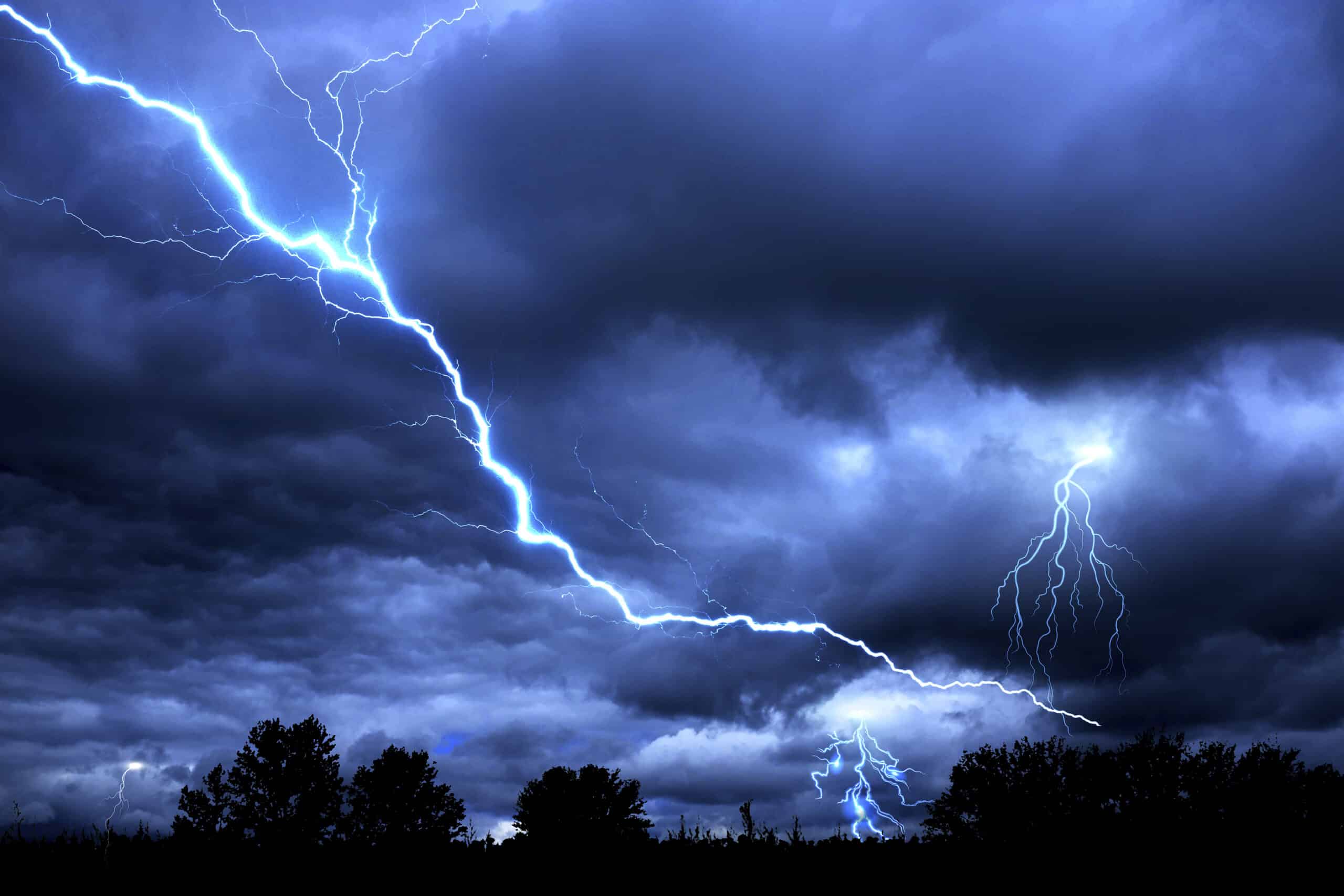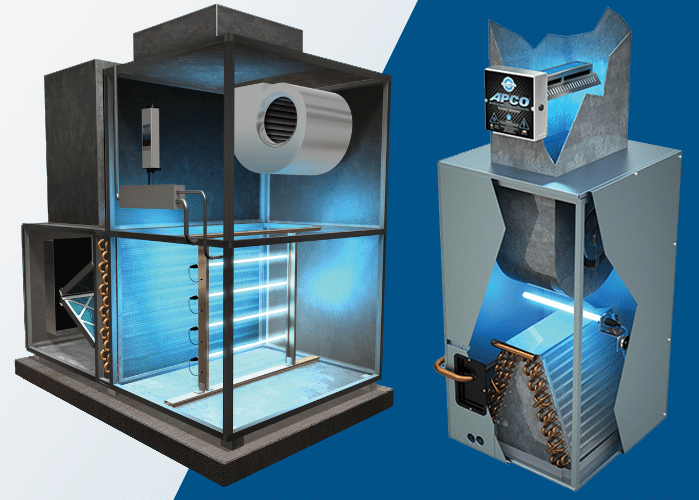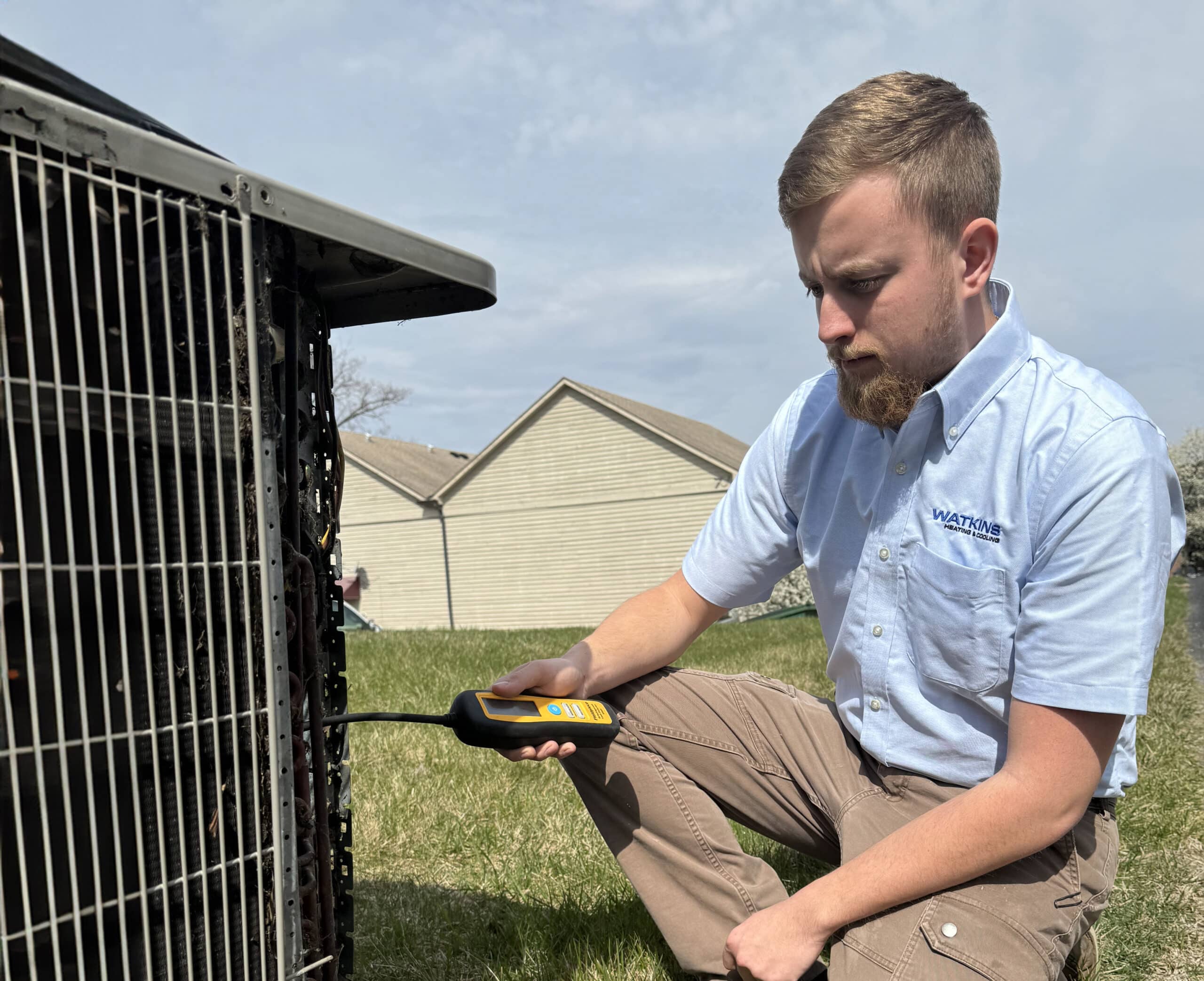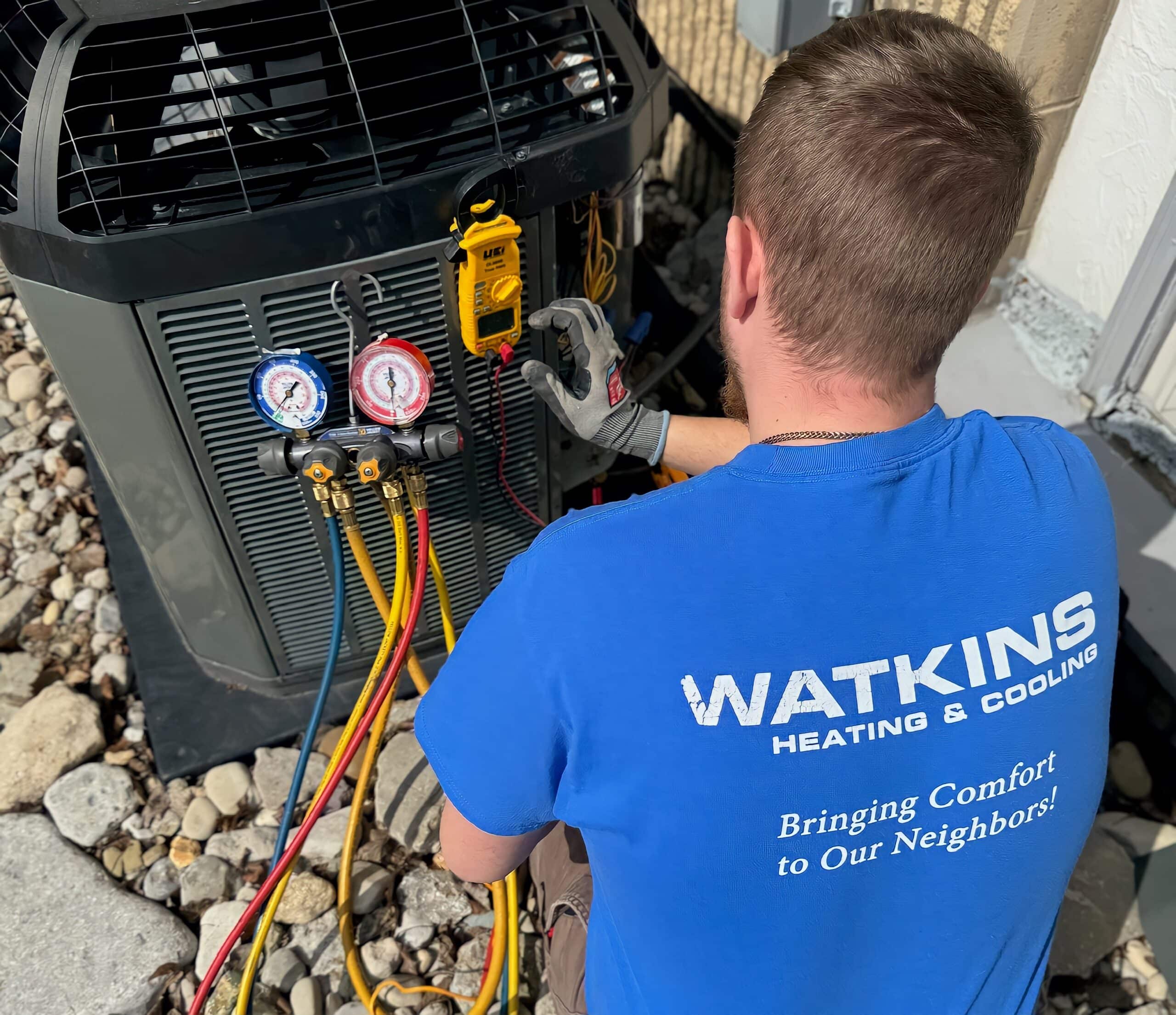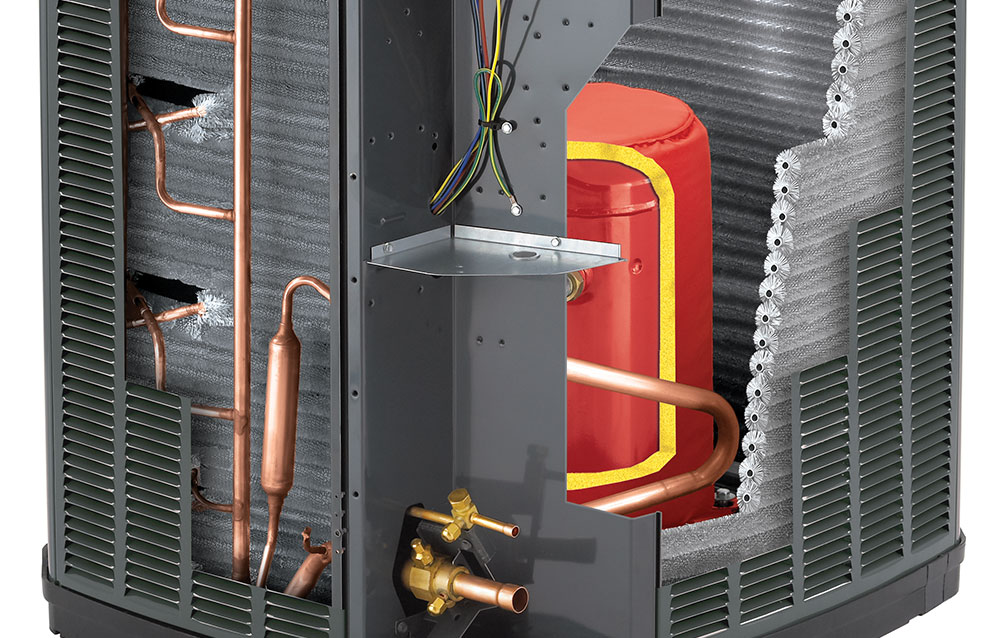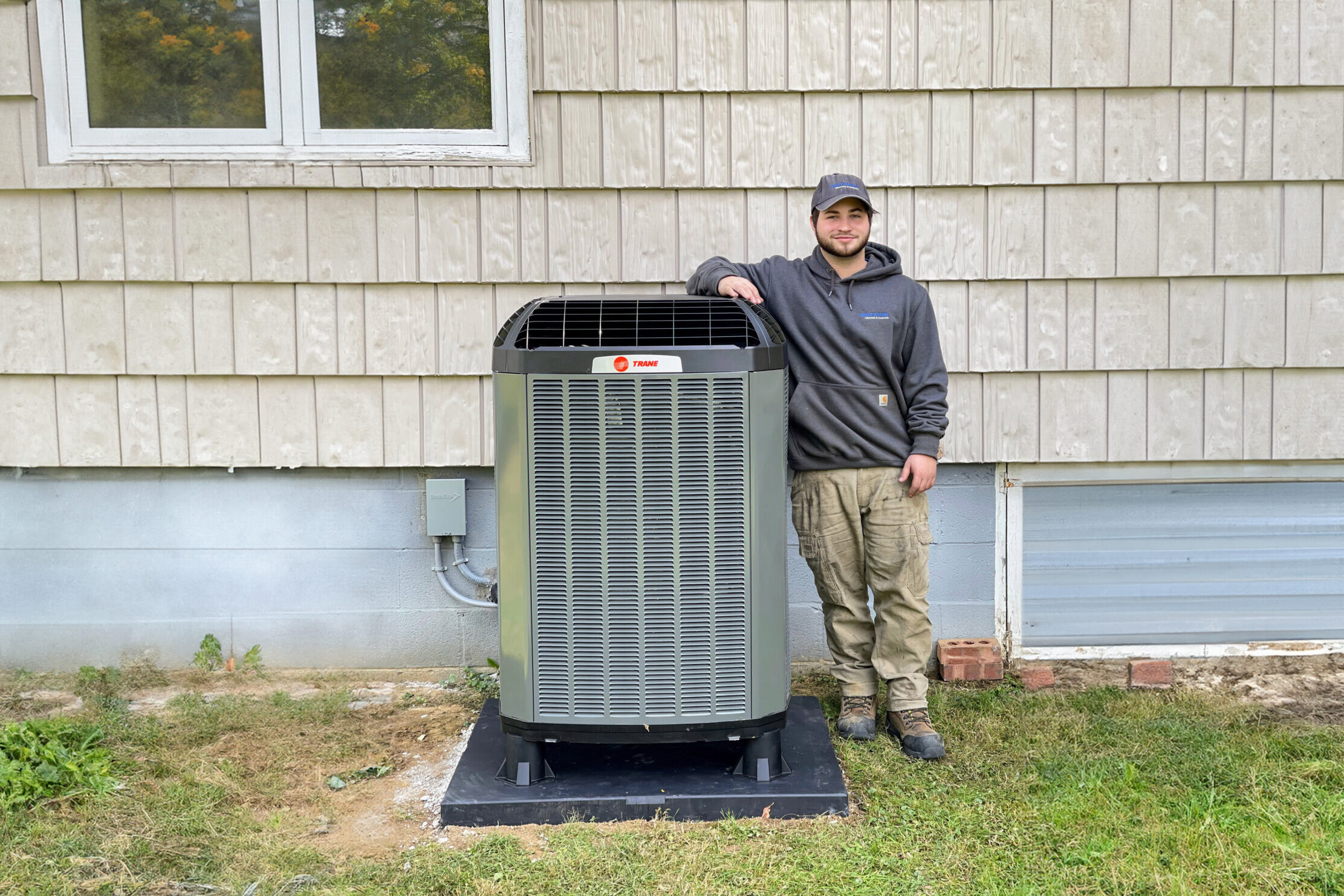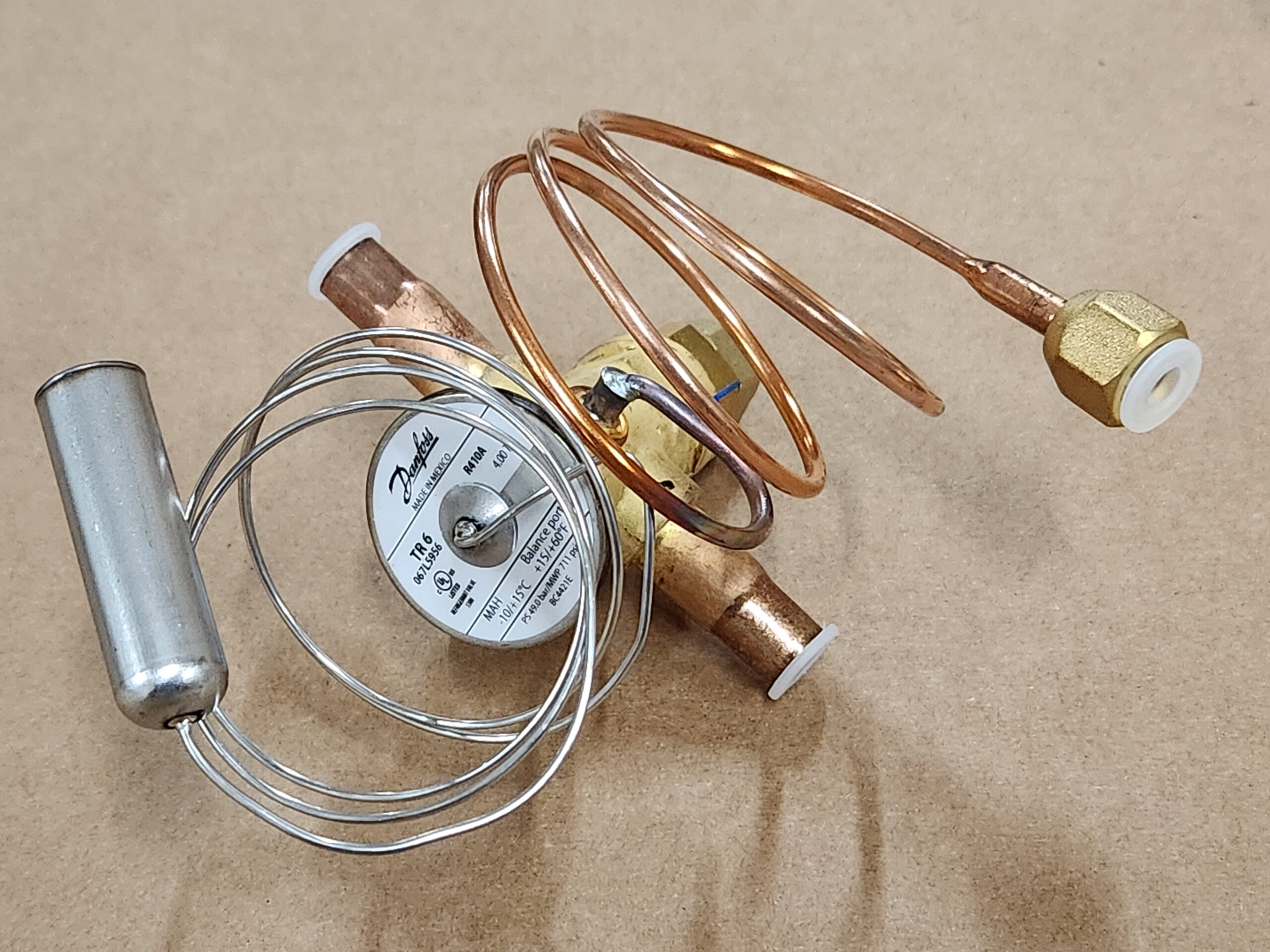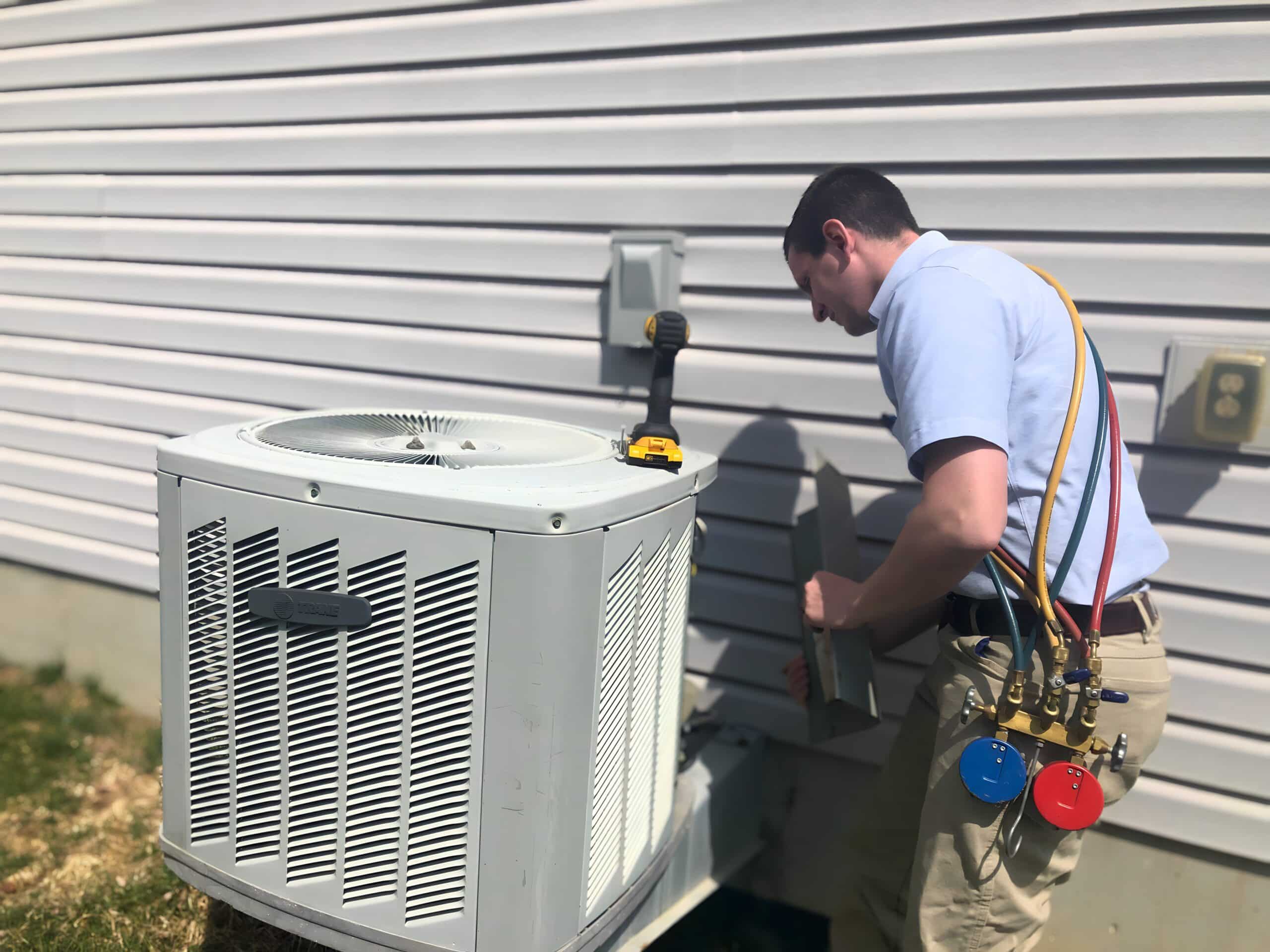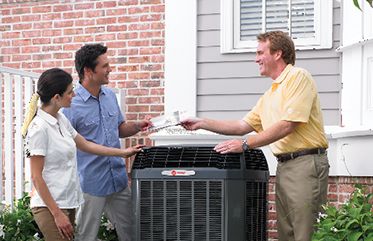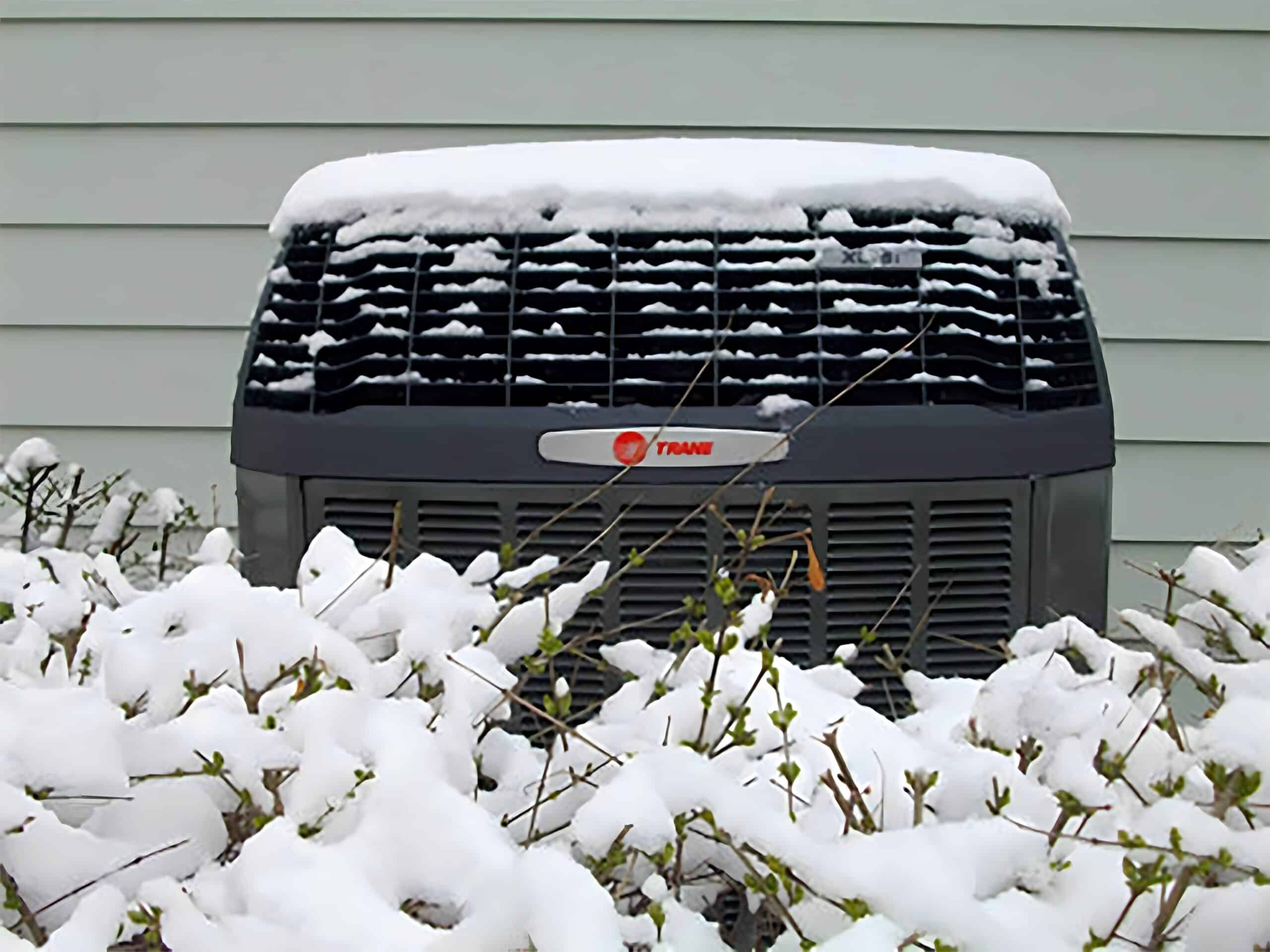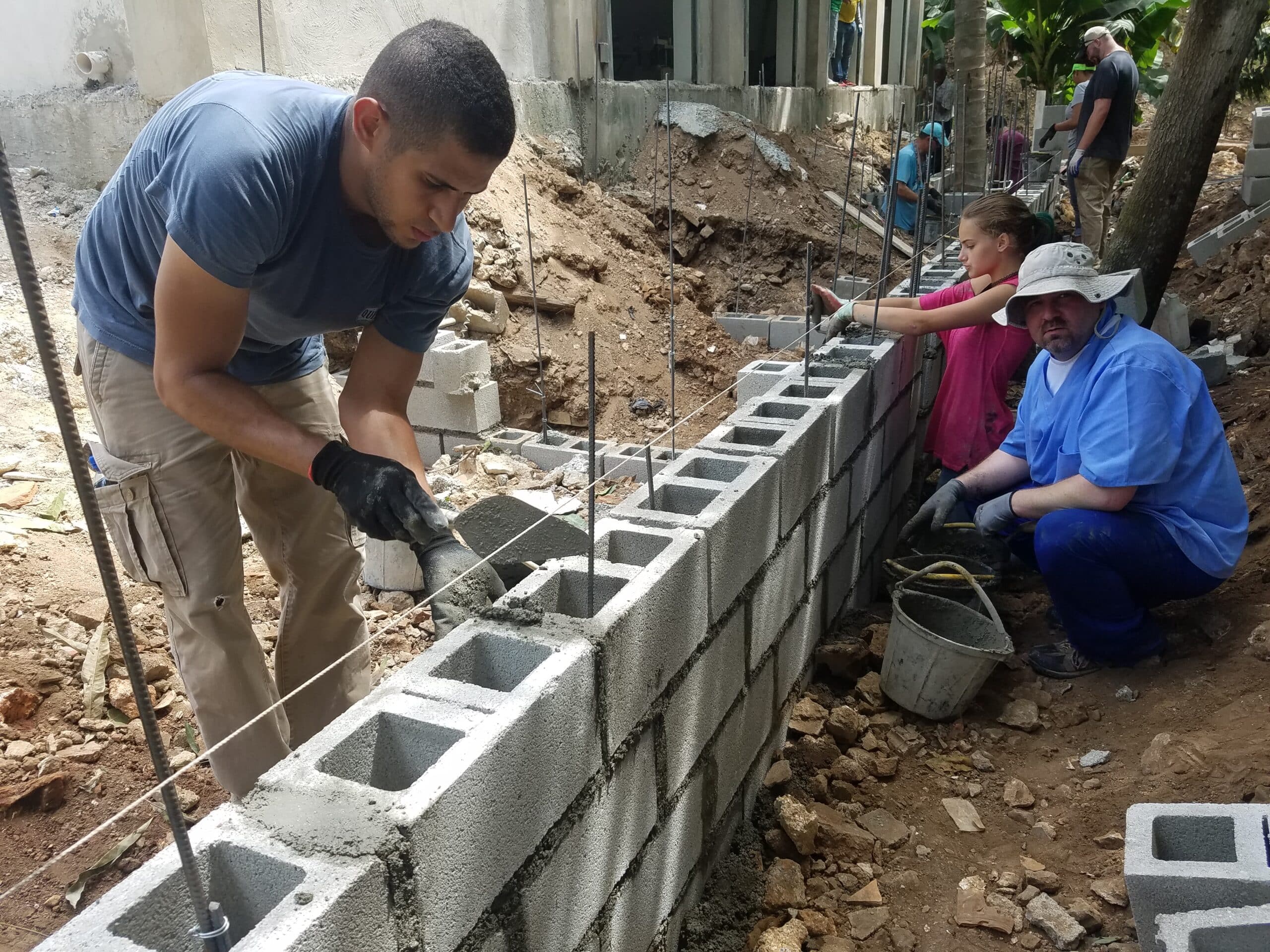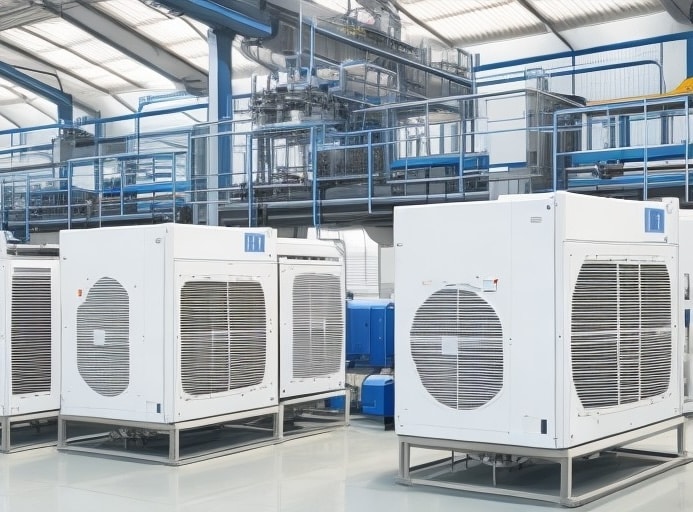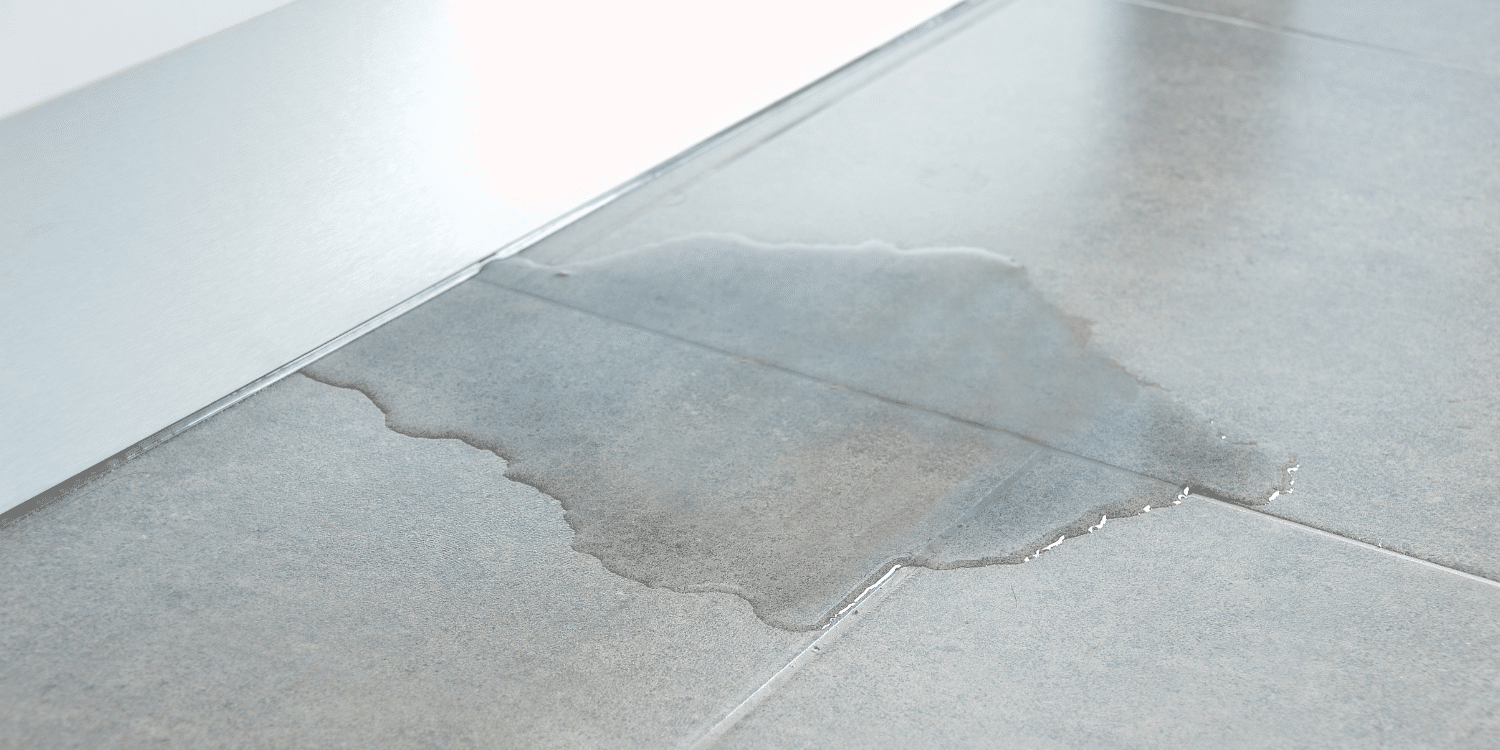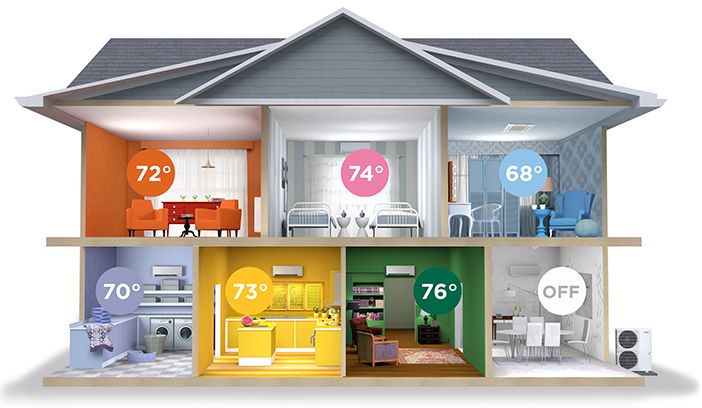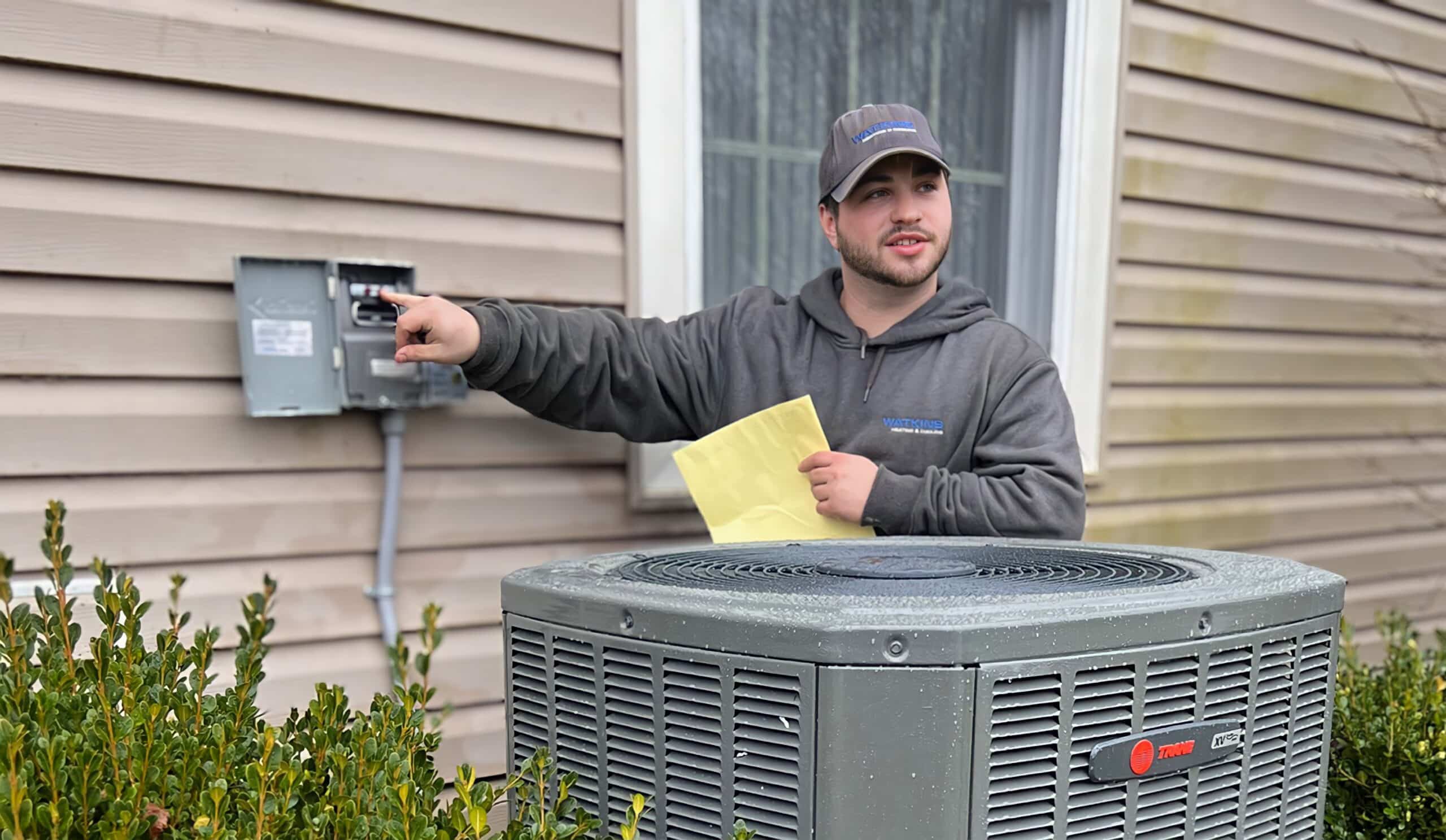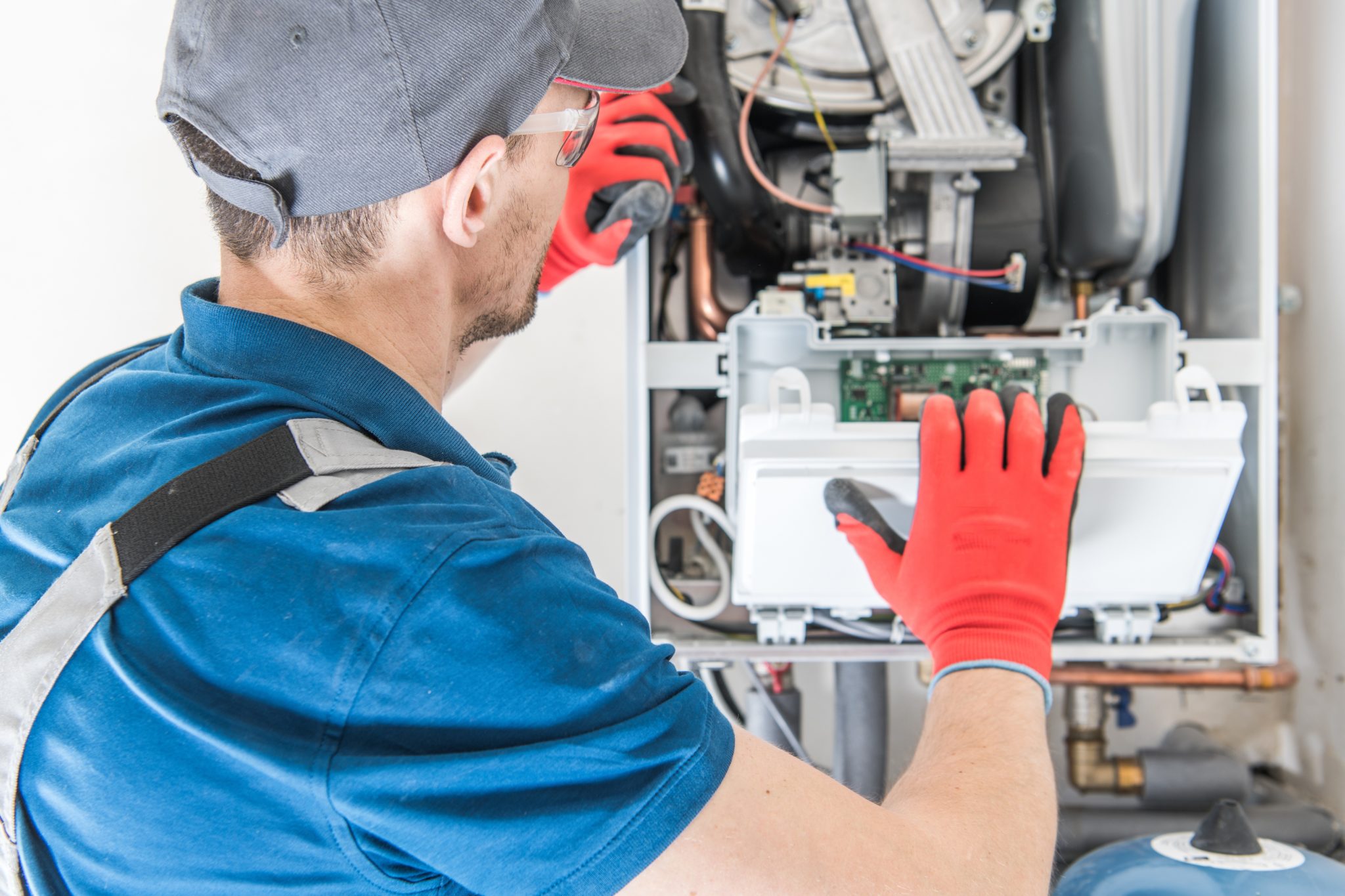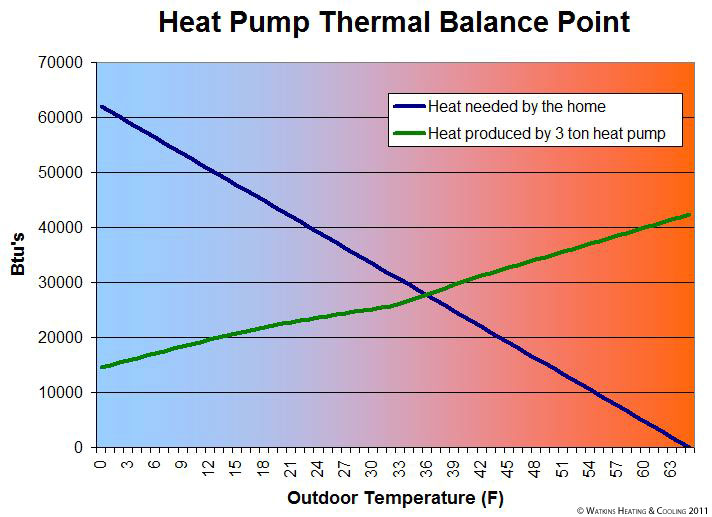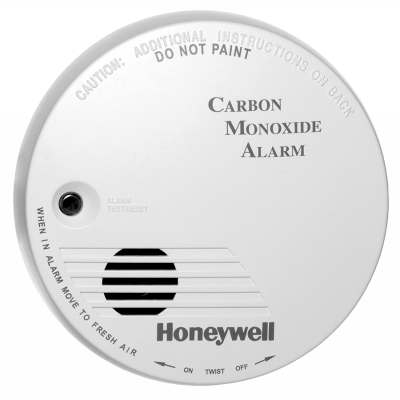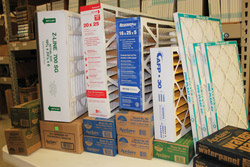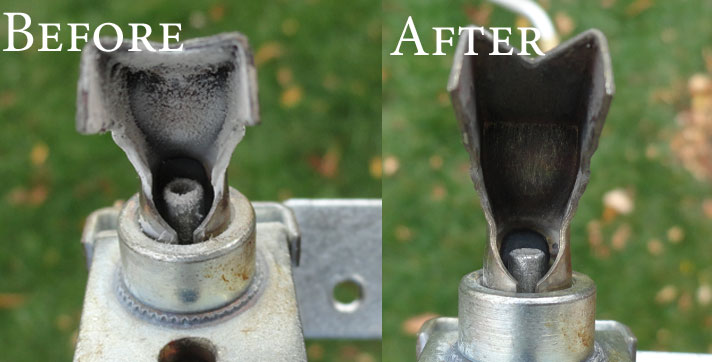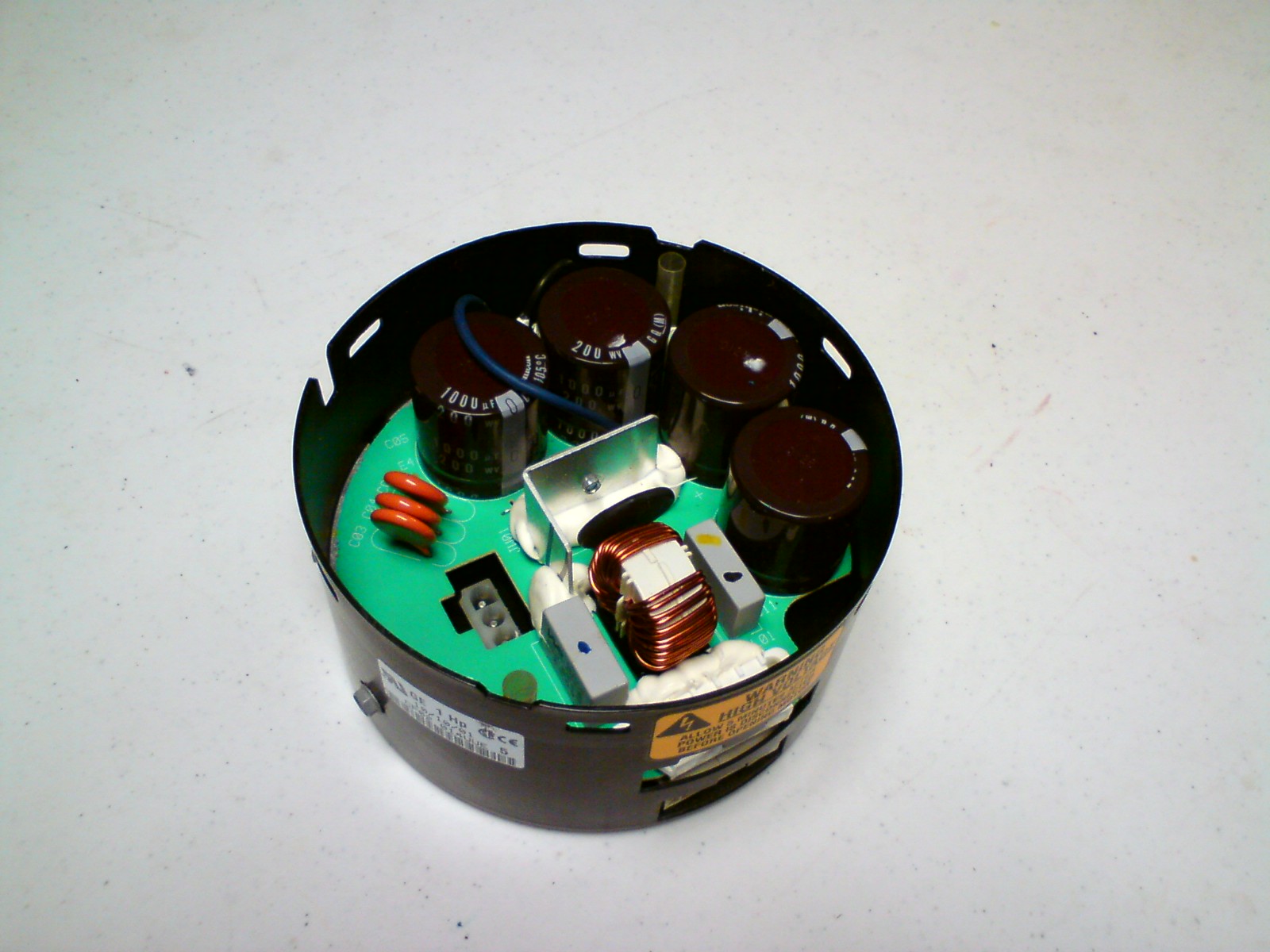Air Conditioner Coil Cleaning: Improve Efficiency & Save Money
Keeping your air conditioner running smoothly and efficiently doesn’t have to be complicated, but it does require staying on top of regular maintenance. One of the most critical aspects of A/C maintenance is coil cleaning.
Think of how other complex systems like a computer, video game system, or even your car’s engine can overheat when dust and dirt accumulate inside. Air conditioners are no different. When debris and dust build up in an air conditioner’s coil, this forces the system to work harder and can cause damage to critical system components. With our own experienced team of professional air conditioner cleaners, we’ve seen firsthand how neglected coils can be detrimental to AC performance. Let’s explore why cleaning your outdoor condenser coils is crucial to keeping your system running smoothly and how it saves you money.
What Is Coil Cleaning?
Before we get into the nitty-gritty, let’s break down what coil cleaning actually involves. Your air conditioning system has two main sets of coils: the evaporator coil inside your home and the condenser coil in the outdoor unit. Both are essential to the heat exchange process, with the evaporator coils or air handler absorbing heat from your indoor air and the condenser coils releasing that heat outdoors.
While this post focuses on cleaning the outdoor condenser coil of your air conditioner, it’s important to note that both the evaporator coil and condenser coil need regular maintenance to ensure optimal performance of your HVAC system.
Coil cleaning involves removing dirt, debris, and other contaminants that accumulate on these coils over time. A professional HVAC technician should perform this cleaning at least once a year, with light cleaning done by the homeowner as often as possible.
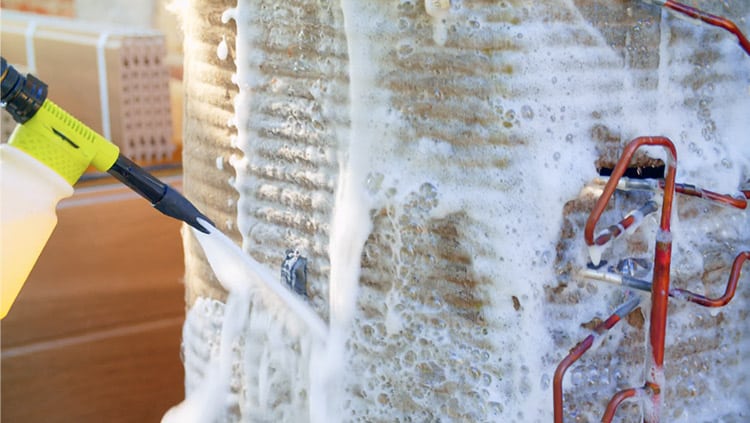
Why Air Conditioner Coil Cleaning Is Important
To understand why clean A/C coils matter, let’s first look at how they work. The evaporator coil absorbs heat from your indoor air, which is then transferred to the refrigerant. This heated refrigerant flows to the outdoor condenser coil, where the heat is released into the outdoor air.
Here’s where things can go wrong. The more your air conditioner runs, the more outdoor air is drawn through these coils. Along with that air comes all sorts of outdoor contaminants that get caught in the coils. In the Dayton and Cincinnati areas, we often see buildup from:
- Cottonwood seeds
- Grass clippings
- Mold spores (from things like landscaping mulch)
- Pollen (from surrounding vegetation)
- Dirt and mud (often splashed onto the condenser unit by rain)
- Pet hair
As your air conditioner or heat pump collects more and more debris, airflow through the dirty coils becomes more and more restricted. With less airflow, your A/C runs hotter and less efficiently. Higher condenser temperatures mean higher pressure in the compressor, hotter operation for the fan motor, and more strain on the capacitor. If you live near cottonwood trees, a single season without maintenance could damage internal components and spike your electric bills.
Benefits of Regular Coil Cleaning
Failing to keep your A/C coils clean WILL result in problems with your system’s performance and operating costs – it’s not a matter of if, but when. However, taking care of your coils offers more than just problem prevention. Here are the key ways regular coil cleaning benefits your system:
- Energy Savings
Clean air conditioner condenser coils allow your A/C to operate at peak efficiency. When both your evaporator coil and condenser coil are in top shape, heat transfer occurs more easily, meaning your system doesn’t have to work as hard to cool your home. This translates directly into lower energy bills – a benefit every homeowner can appreciate.
The U.S. Department of Energy emphasizes that in order for a system to operate at peak efficiency, homeowners must stay on top of regular maintenance.
- Improved Lifespan of Your A/C System
Routine coil cleaning extends the life of your air conditioner by reducing strain on vital components, especially the fan motor, compressor, and capacitor. An A/C coil that isn’t maintained will always have a shorter lifespan. When your system doesn’t have to work overtime to compensate for dirty coils, parts like the compressor and fan motors last longer.
- Reduced Repair Costs
Here’s where cleaning really saves you money. The higher temperatures generated by a dirty air conditioning unit can cause premature failure of both small components (like fuses and capacitors) and large components (such as fan motors and compressors). These lead to more frequent breakdowns and repairs. By keeping your air conditioning coils clean, you’re preventing small issues from snowballing into bigger, more expensive problems down the line.
- Improved Humidity Control
When your outdoor A/C unit is dirty, the freon temperatures and pressures increase. Depending on your system, a rise in condenser pressure (head pressure) creates a rise in evaporator pressure (suction pressure). When the suction pressure is high, the indoor evaporator coil cannot get cold enough to remove humidity well. Higher humidity make your home feel sticky and uncomfortable and could lead to mold growth.
- Improved Indoor Air Quality
While not directly related to efficiency, a clean evaporator coil contributes to better indoor air quality. When the indoor coil is dirty, it becomes a breeding ground for mold and bacteria, which can then be circulated throughout your home and lead to potential health issues from poor air quality.
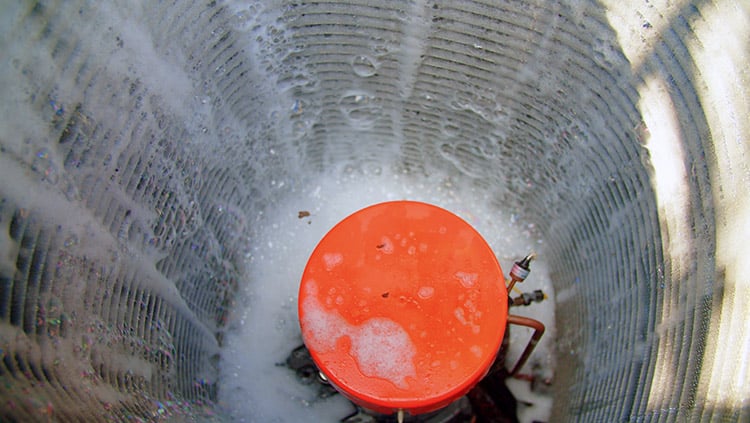
How to Tell When Your Air Conditioner Coils Need Cleaning
Now that you understand the importance of clean A/C coils, you might be wondering how to tell if yours need attention. Here are some telltale signs:
- Reduced Cooling Efficiency: If your home isn’t cooling as quickly or evenly as it used to, dirty A/C coils could be the culprit.
- Higher Energy Bills: An significant rise in your energy costs from one summer to another could point to a system running with lower efficiency.
- Warm Air from Vents: If the air coming from your vents isn’t as cool as it should be, your coils might be struggling to transfer heat effectively.
- Ice Formation on Coils: Ironically, dirty evaporator coils can actually cause ice to form on the indoor coil, further reducing efficiency.
- Visible Dirt or Debris: Sometimes, especially on outdoor units, you can actually see the buildup of debris on the evaporator coils or condenser unit.
How Often Should You Get Your A/C Coil Cleaned?
For optimal performance, we recommend you have a professional perform a thorough service of your system at least once a year. If you live in an area that is heavy with cottonwood trees, you might need a mid-season cleaning, but that would be an extreme case.
Many homeowners insist on an air conditioning tune-up in the Spring, when service schedules are also packed with no-cool emergency calls. While cleaning outdoor condenser coils can be done anytime the weather is above freezing, a proper operations test requires warmer weather, preferably in the high 70s. If you book your tune-up in late Summer, it will be clean and ready first thing in the Spring. In the end, it really doesn’t matter as long as it’s done annually.
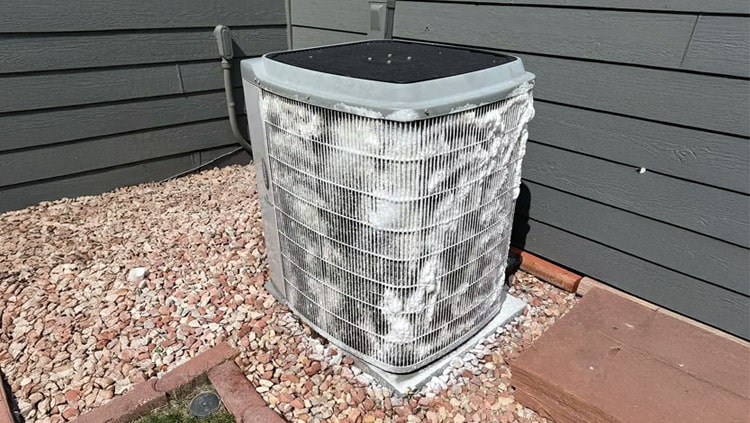
Professional Air Conditioner Coil Cleaning
While there are some maintenance tasks homeowners can handle themselves, coil cleaning is usually best left to HVAC technician professionals. Here’s why:
- Specialized Equipment: At professional companies like Watkins, we use specialized tools and strong cleaners designed specifically for A/C coils. For instance, our air conditioner coil cleaner foam penetrates deep into the coils, lifting dirt and debris without causing damage to the copper or aluminum.
- Coil Cleaning is just one part of a full Tune-up: When we clean air conditioner coils, we’re not just scrubbing away dirt. We’re also inspecting your entire A/C system for potential issues, ensuring everything is in top working order. We test safeties, monitor compressor amp draw, and fine-tune the refrigerant levels. Coil cleaning is simply one step.
- Safety: A/C systems involve electricity and potentially harmful refrigerants. Professional technicians have the training to work safely with these components.
- Warranty Protection: Many manufacturers require professional maintenance to keep your warranty valid.
DIY A/C Coil Cleaning
Cleaning your outdoor condenser coils is a task that homeowners can handle, but only in very specific scenarios. If your A/C coils are visible without removing an access panel and there’s light debris (like cottonwood seeds or a light layer of dust), you may be able to clean them yourself. Here’s how to do it:
- Turn off the power – Since you need water to clean the A/C coil, it’s a must to first shut off the electricity to your unit. It’s not enough to turn off the thermostat. To deenergize the air conditioner, you have to either pull the disconnect or turn off the breaker.
- Check for easy access – If your condenser coil is not protected by a full wrap cabinet, you should be able to clean the coil without disassembly.
- Watch for the type of coil – If your unit has a spine fin coil, double-row coils, or if you have to take apart the cabinet to reach the coils, we don’t recommend doing this yourself. These situations require professional attention to avoid any damage.
- Use a water hose – Assuming you have easy access to the coil, we recommend a gentle rinse from a garden hose. You should never use a pressure washer on any type of coil. When spraying the fins, be sure to spray in the direction of the fins, not against the fins to avoid bending them.
- Coil Cleaner to dissolve dirt and grime – For light debris on the front like surface dust, you can use a spray bottle with water and a cleaning solution such as simple green. For results, you really need a professional coil cleaner mixed properly in a pump sprayer. Our favorite condenser coil cleaner is Viper which can be found here on Amazon.
For anything more complex, bringing in a professional is always a safe bet. Here are some issues you might run into if you decide to do it on your own.
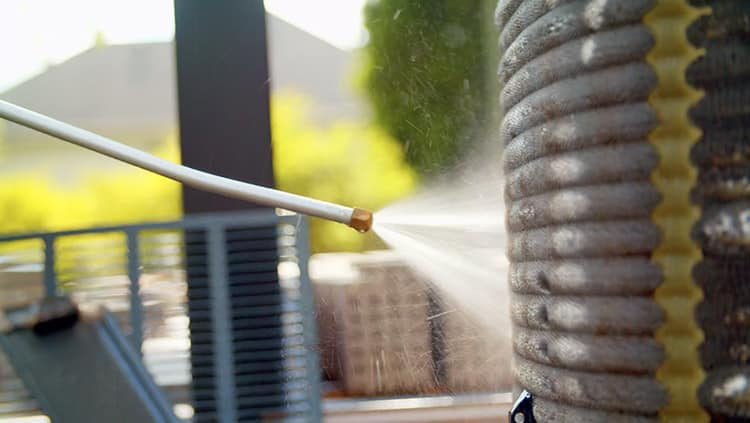
Potential Problems with Cleaning Coils Yourself
While it might seem more convenient or cost-effective, DIY coil cleaning does come with significant risks:
- Equipment Damage: The coil fins on A/C coils are delicate and can be easily bent or damaged with improper cleaning techniques. Most condenser coils are best cleaned from the inside out and you could bend the fan or break wires while disassembling the air conditioner.
- Incomplete Cleaning: Without the right tools and experience, you might not be able to clean as thoroughly as a professional would. Some of the most common brands have fins that can look clean on the outside while hiding deeply packed dirt in the creases of the fins.
- Safety Concerns: Professional coil cleaner has a high ph like oven cleaner and can burn the skin. Working with electrical components can also be dangerous, especially when you’re holding a garden hose! Before spraying the coil or disassembling the unit, you should verify that the power is off using a multimeter.
- Voided Warranty: Some manufacturers may void your warranty if the unit isn’t maintained by a licensed professional HVAC technician.
How Homeowners Can Prevent Future Coil Buildup
While it often makes sense to leave the full maintenance to coil cleaner professionals, there are steps you can take to help keep your A/C running smoothly between cleanings:
- Clear Debris Around the Unit: Regularly remove leaves, mulch, and other debris from around your outdoor unit. Trim back any plants to ensure good airflow to the condenser unit and prevent debris from building up on your condenser coils.
- Be Careful Cutting the Grass: It can be easy to accidentally blow grass clippings into the condenser coil while cutting the grass. The can be especially bad if the A/C is running at the time.
- Change Air Filters Regularly: Clean air filters prevent dust and debris from reaching your indoor evaporator coils in the first place. Aim to change your filters every 1-3 months, depending on usage, air quality, and filter type.
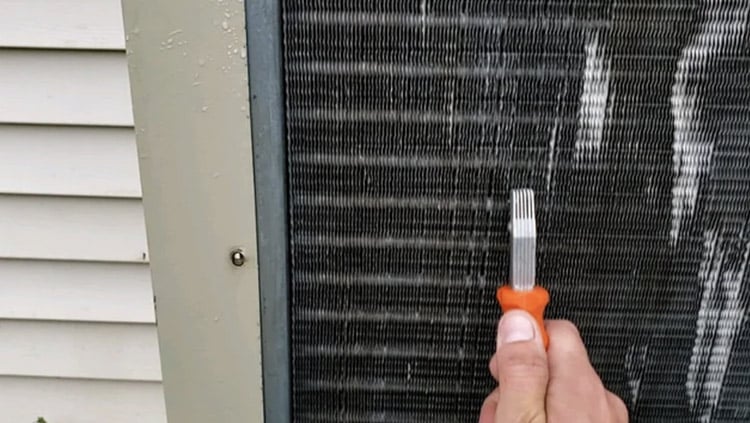
Repairing Bent A/C Coil Fins
When you clean air conditioner coils, it’s important to be mindful of the coil fins that surround your condenser coil. These thin aluminum fins help release heat from the system and are very delicate. Using too much water pressure or spraying at the wrong angle can easily bend them, reducing airflow and making your A/C work harder.
A fin comb can help straighten bent fins and restore airflow, but it’s impossible to restore them to factory-fresh condition. To prevent accidental damage, the best brands, including Trane, protect the aluminum fins with a full-wrap steel cabinet. This is one of the many reasons we love Trane air conditioning systems.
By using proper cleaning techniques—or leaving it to the pros—you can avoid bending the fins and maintain efficiency.
Keep Your A/C Running For A Long Time with Proper Care
Cleaning air conditioner coils is an essential part of maintaining an efficient, long-lasting A/C system. You can help prevent future issues by clearing debris from around the unit, changing your air filters regularly, and scheduling routine maintenance from a professional HVAC service technician.
At Watkins, we offer thorough, comprehensive tune-ups on all types of HVAC systems including air conditioners and heat pumps. Our experts have cleaned literally thousands of coils of all makes and models and we know firsthand that a clean air conditioner can make all the difference in your system’s performance and reliability.

